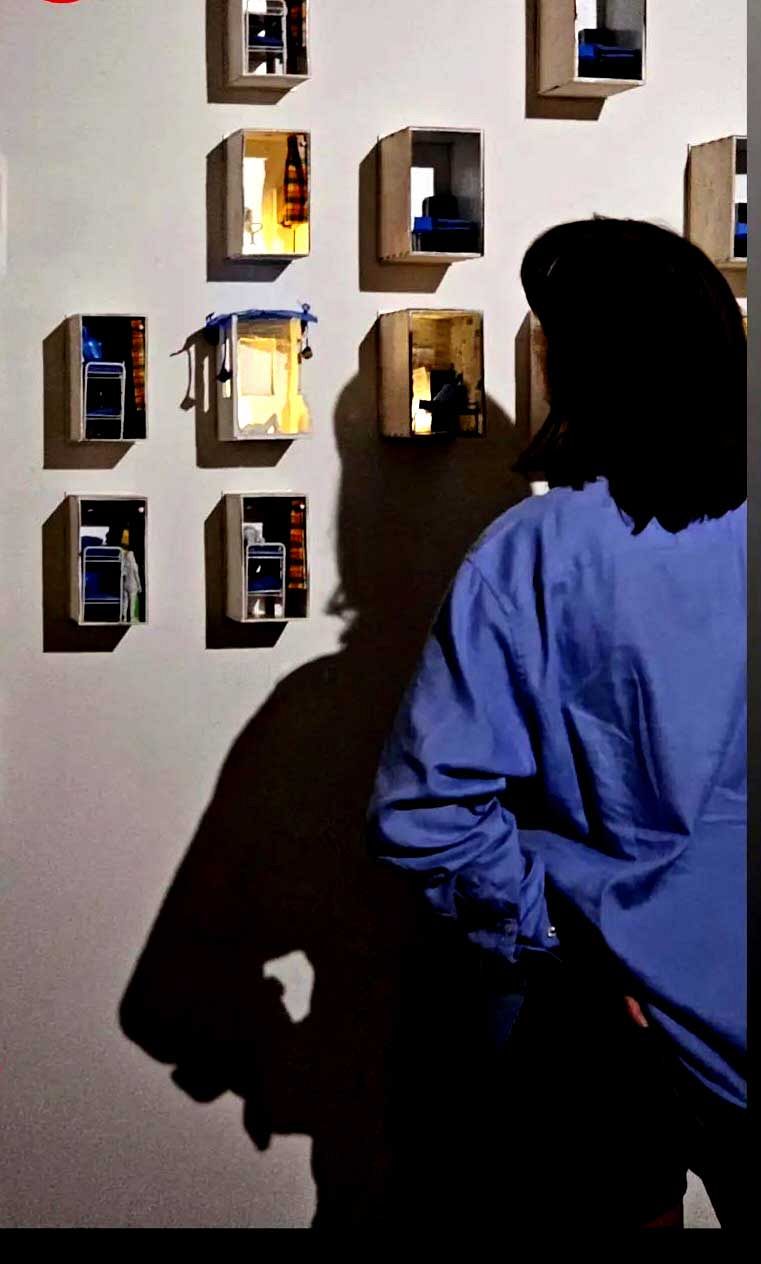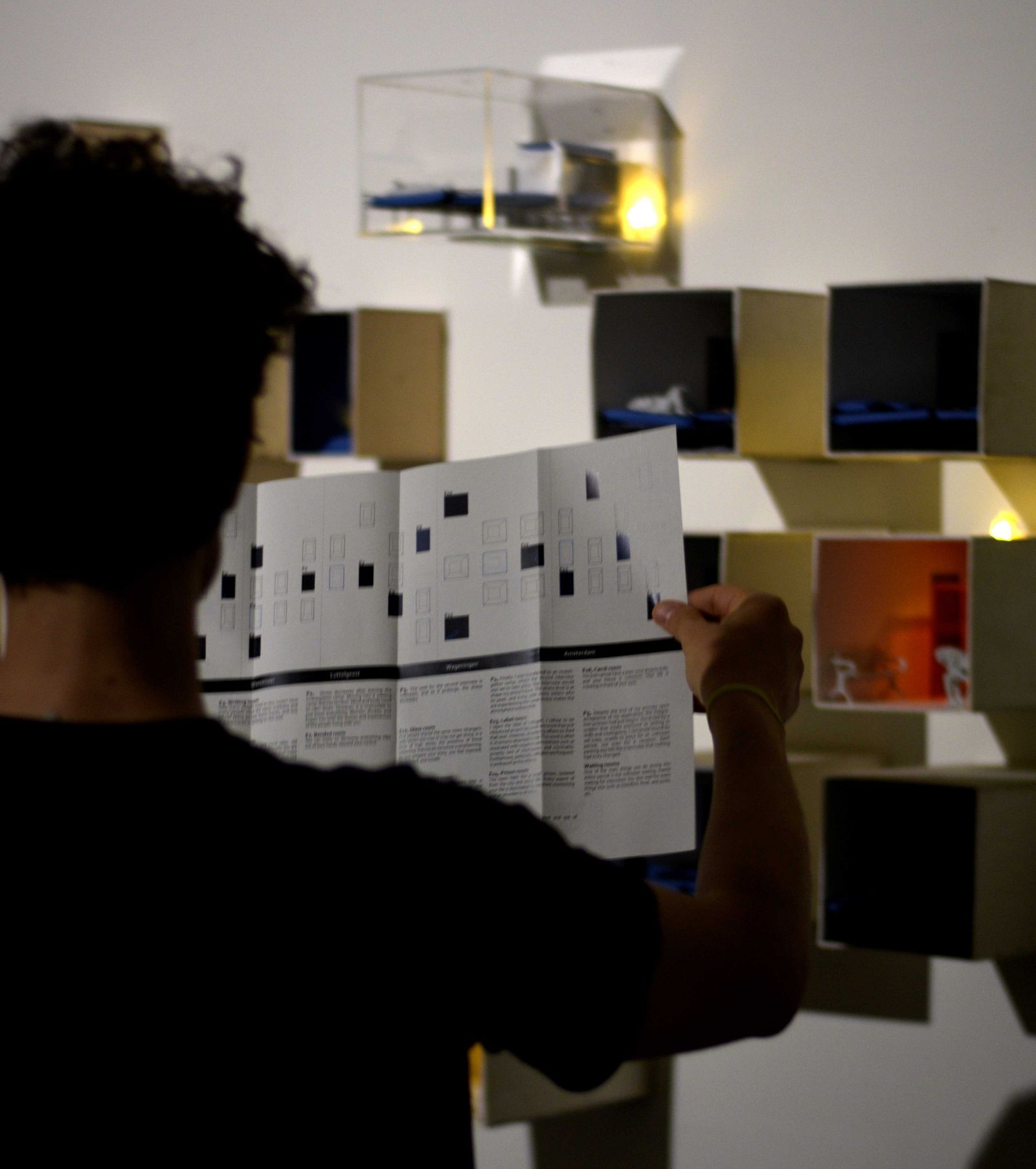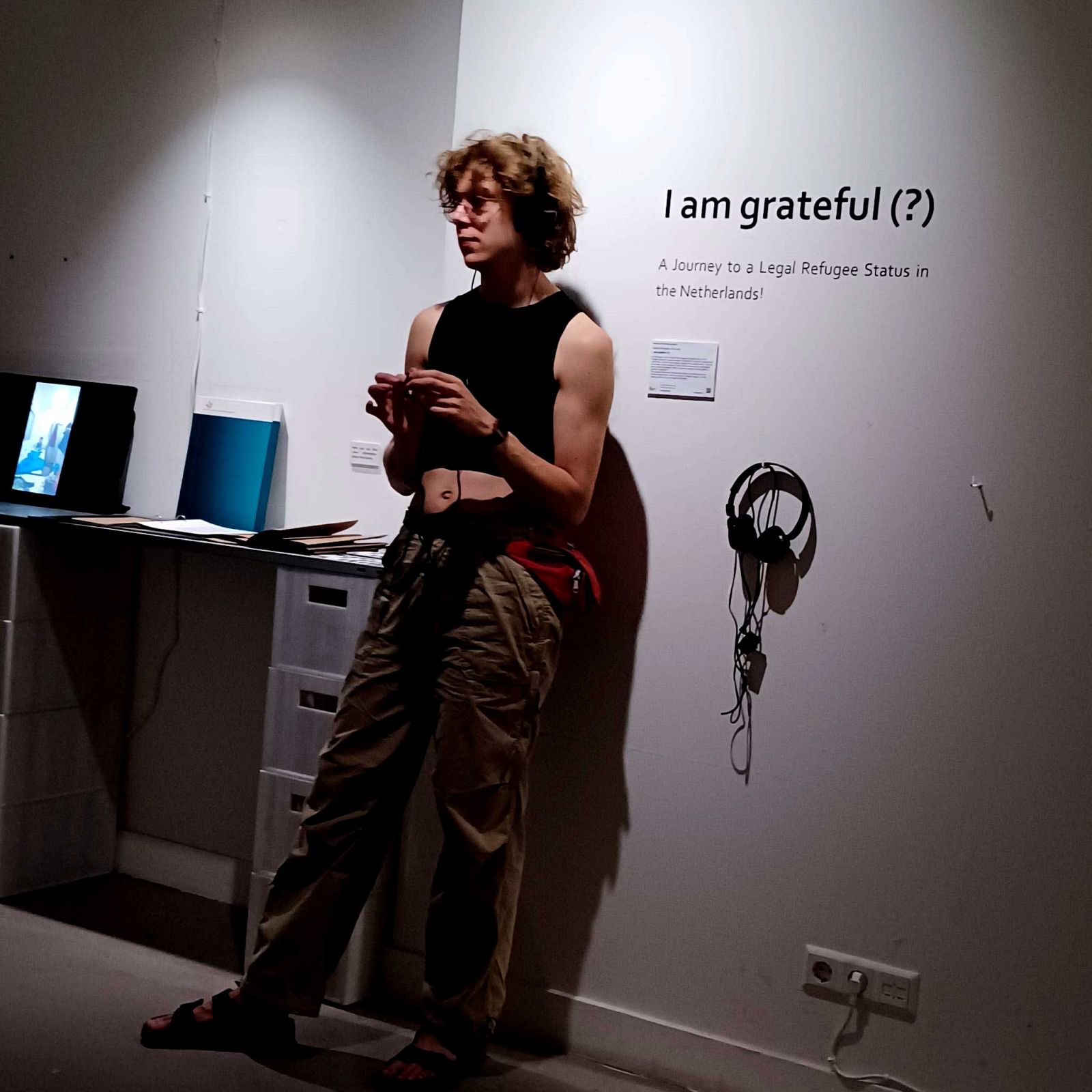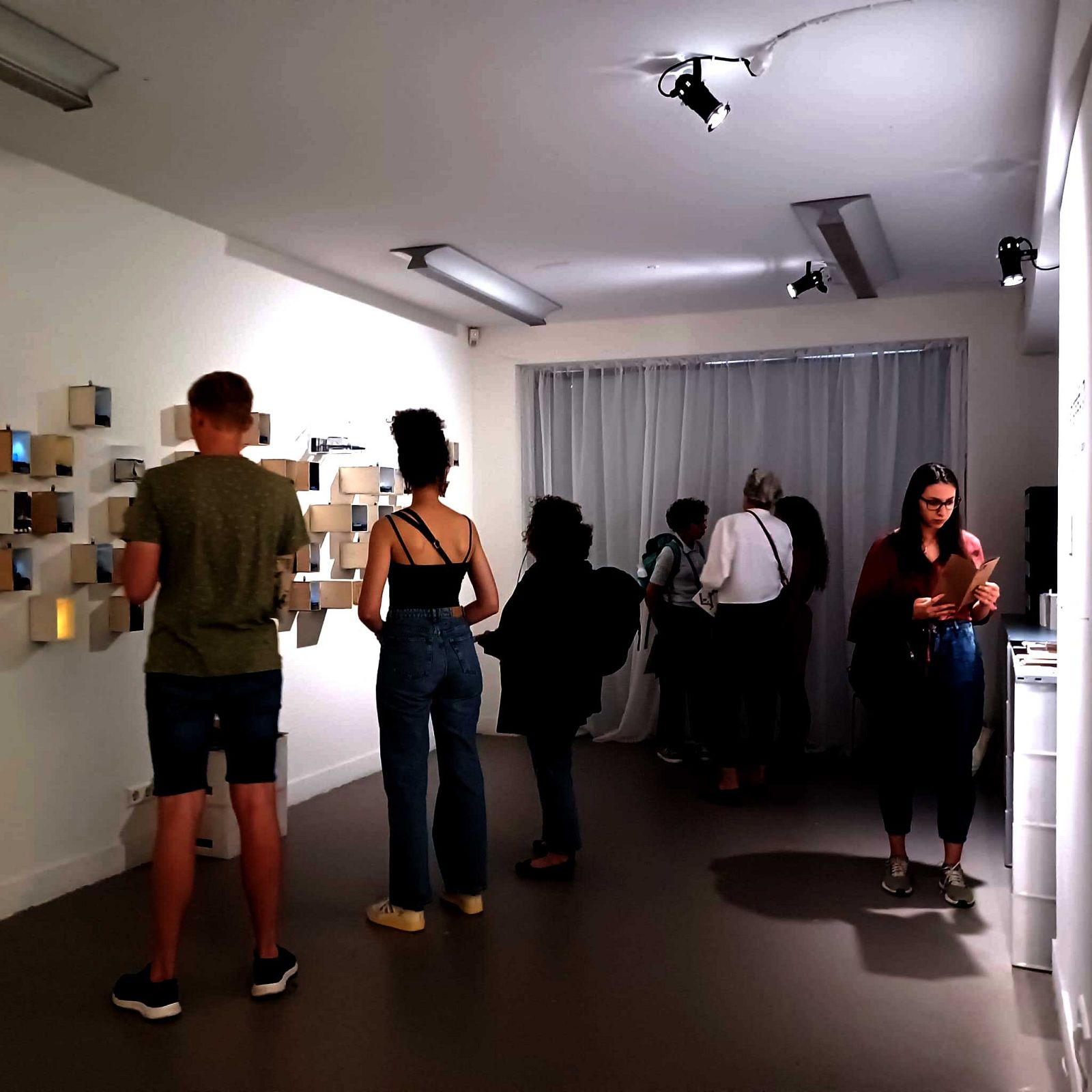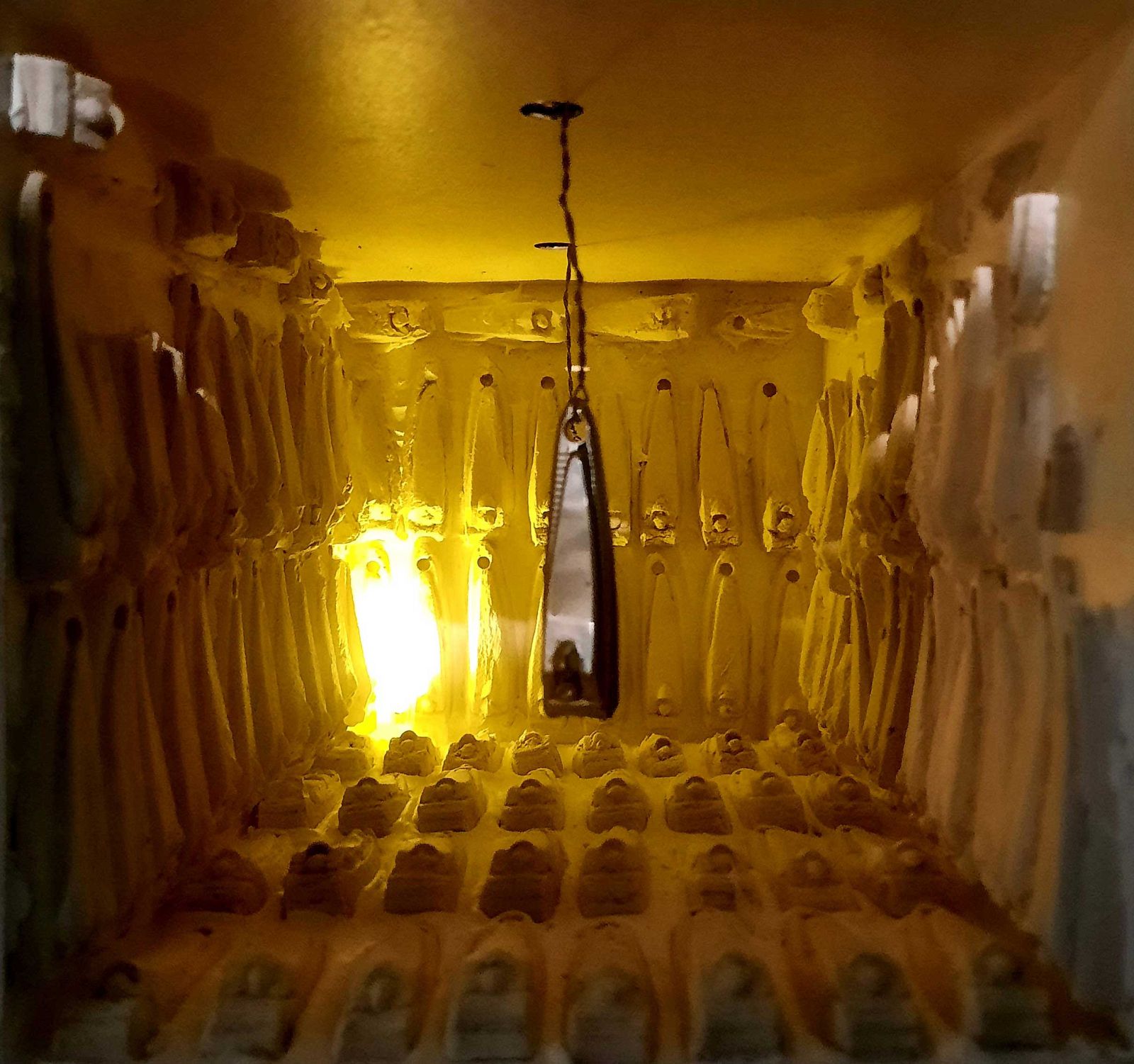
During my two-year asylum journey in the Netherlands, I was forced to move between five different refugee centres. In this installation, I have reconstructed one room of each of the five camps:
Ter Apel,
Wassenaar,
Luttelgeest,
Wageningen,
and Amsterdam.
I am grateful (?)
A Journey to a Legal Refugee Status in the Netherlands!
Behind the walls of the refugee centres lies another dimension, a place that doesn’t look like the Netherlands. You might think that the route is the hardest part of any refugee's journey, but unfortunately, the journey continues even within the country of arrival— in this case, the Netherlands. The struggle persists within the confines of the Dutch refugee centres. Arriving in the Netherlands should mark the end of the story, where everyone can live happily ever after. But the reality is that another journey, not much better than the previous one, has just begun.
In this project, I am trying to depict the struggles refugees face in the Dutch refugee centres. I aim to create spaces that reflect the emotions experienced within them. How do these spaces change over endless waiting? How do they reflect various emotions? How do they embody the psychological state of their inhabitants? What do spaces represent if they identify a system of repetition?
Through recreating spaces based on various scenarios and experiences—both my own and those of many others in camps across the Netherlands—I strive to shed light on the ongoing journey refugees face even after reaching their destination. This project is an exploration of the intersection between physical space and emotional experience, an attempt to make tangible the often invisible struggles of those seeking safety and longing for a new beginning.
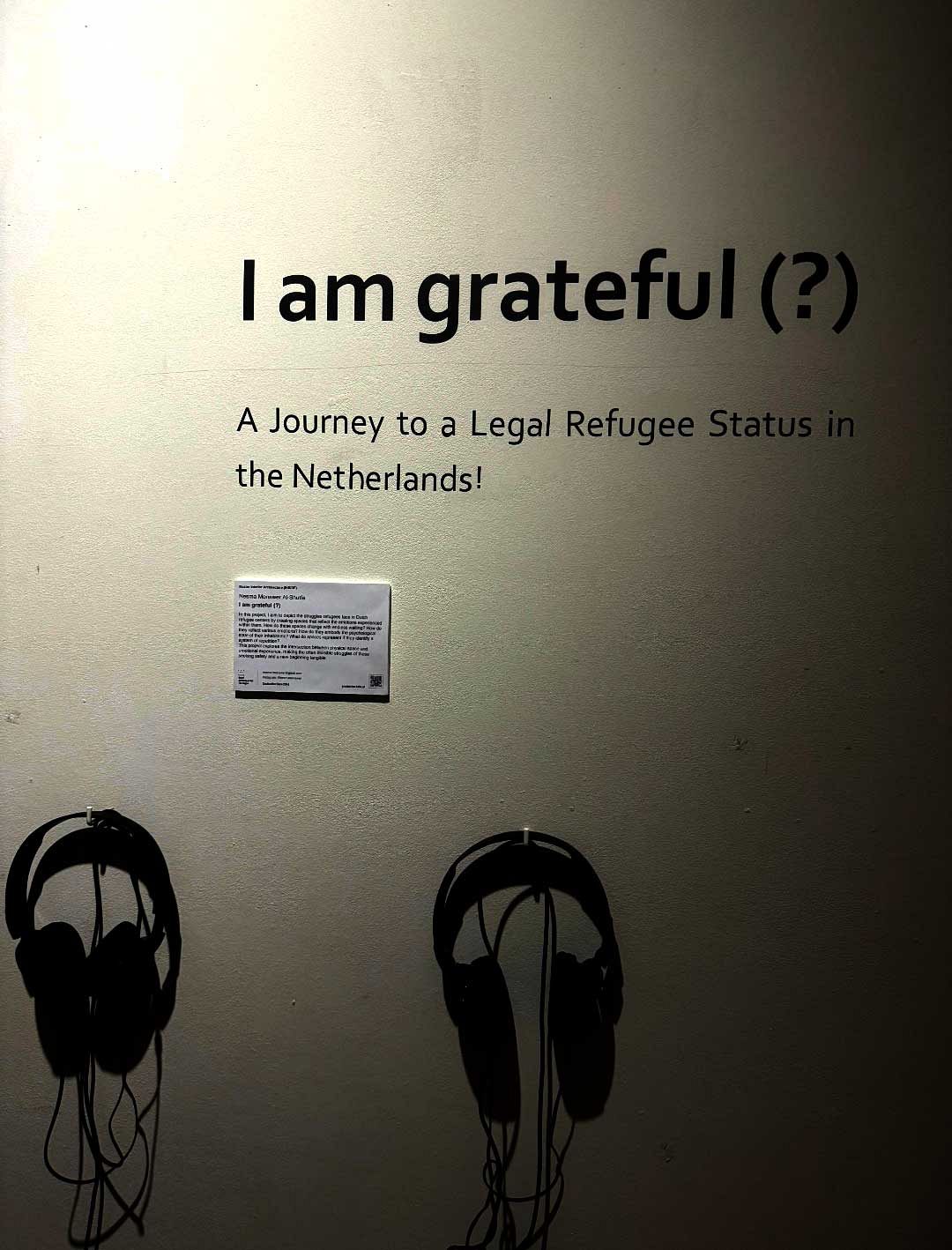
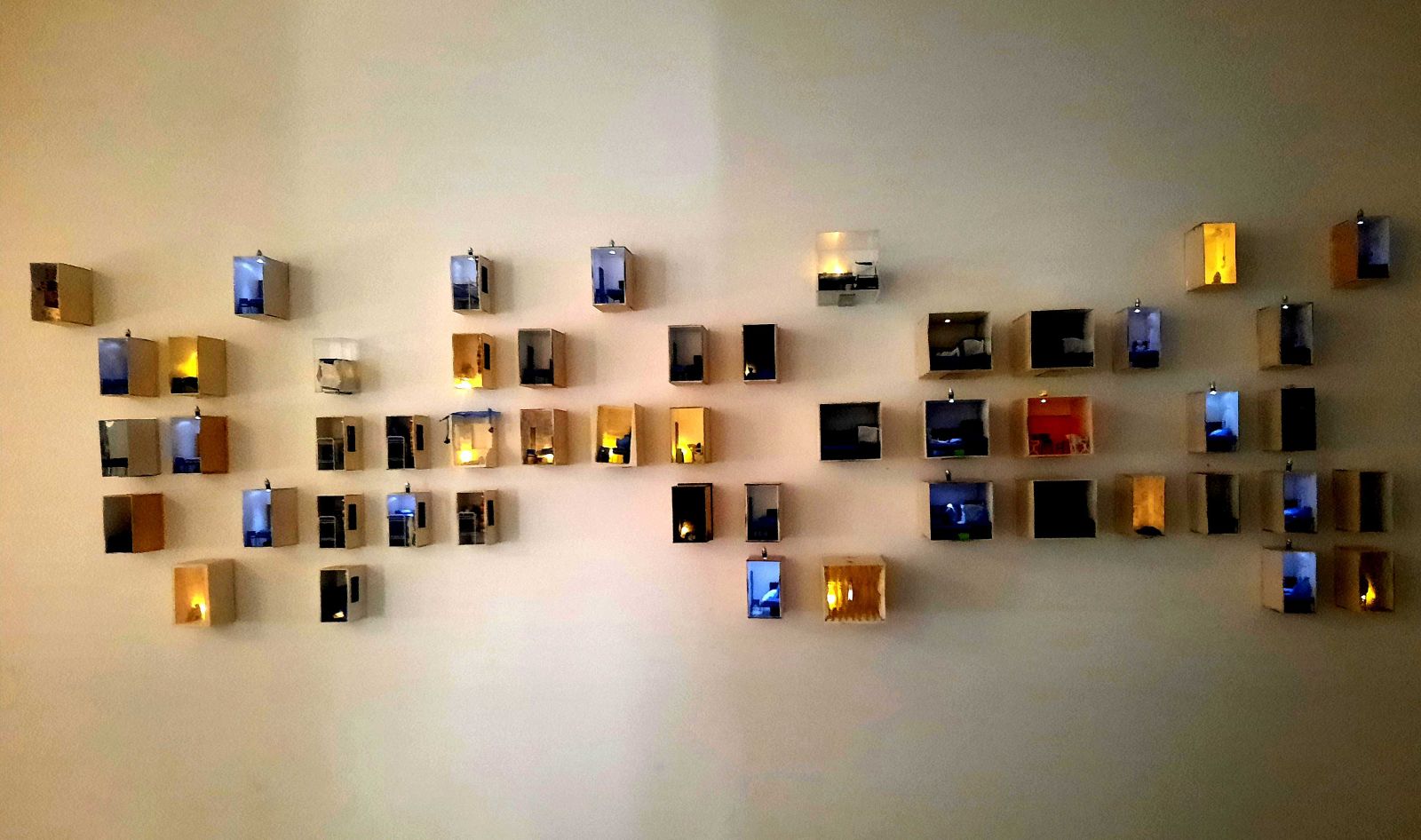
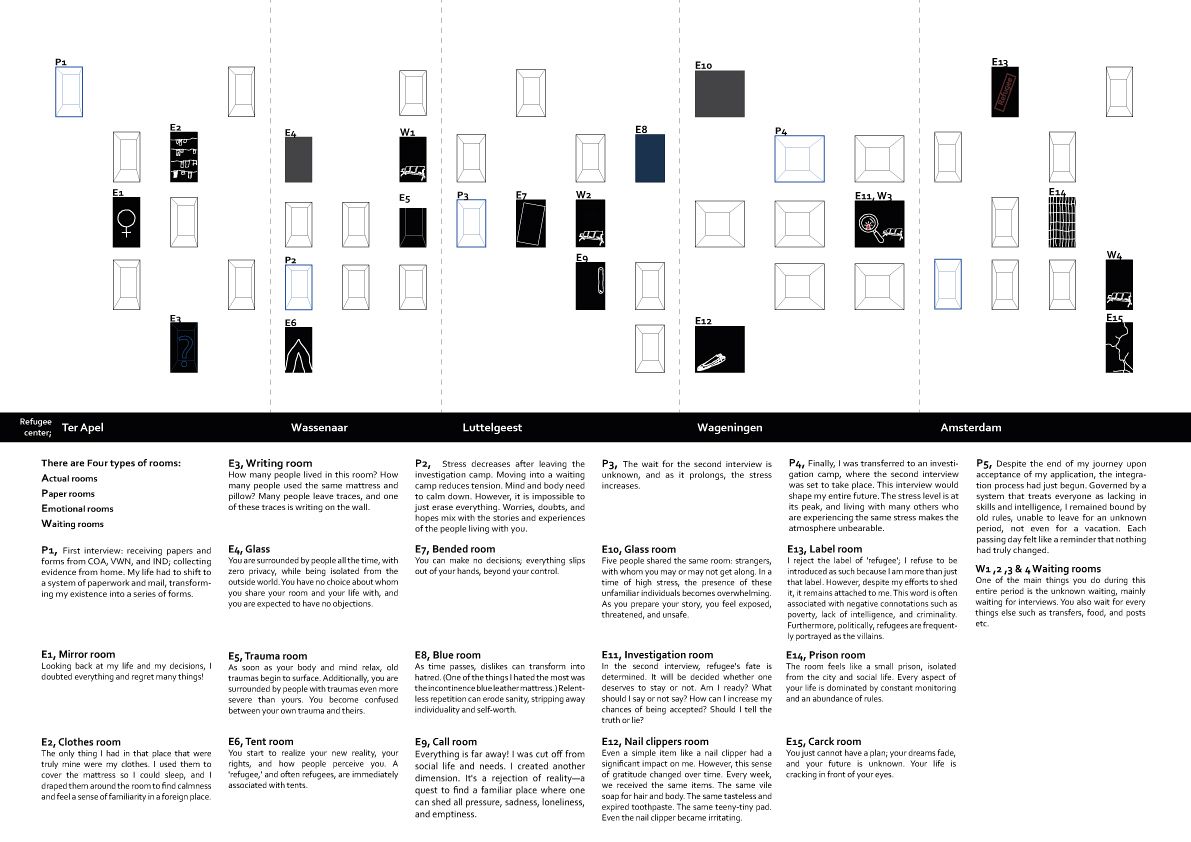
Actual rooms
I recreated the actual rooms from memory, matching the size, furniture, and every small detail.
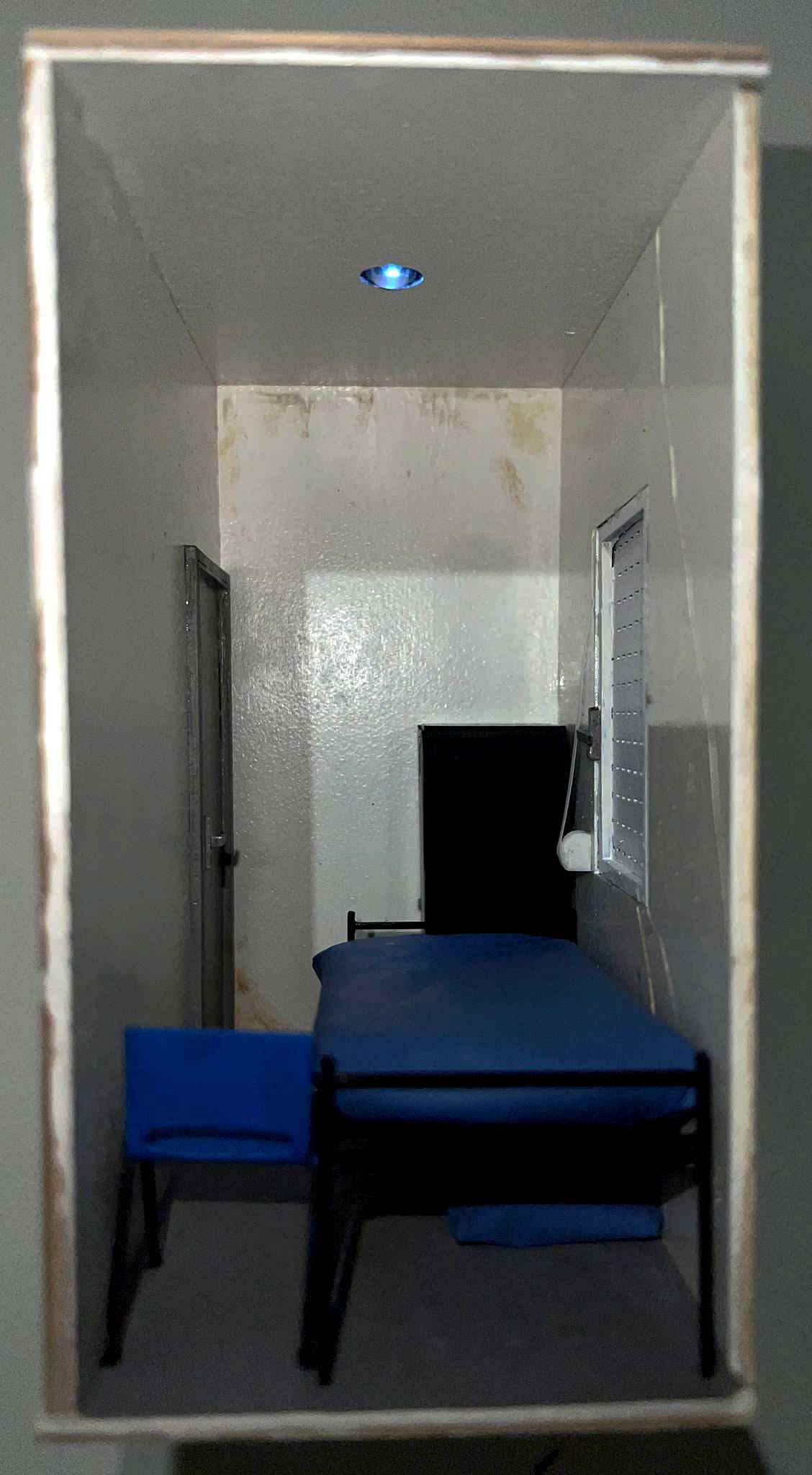
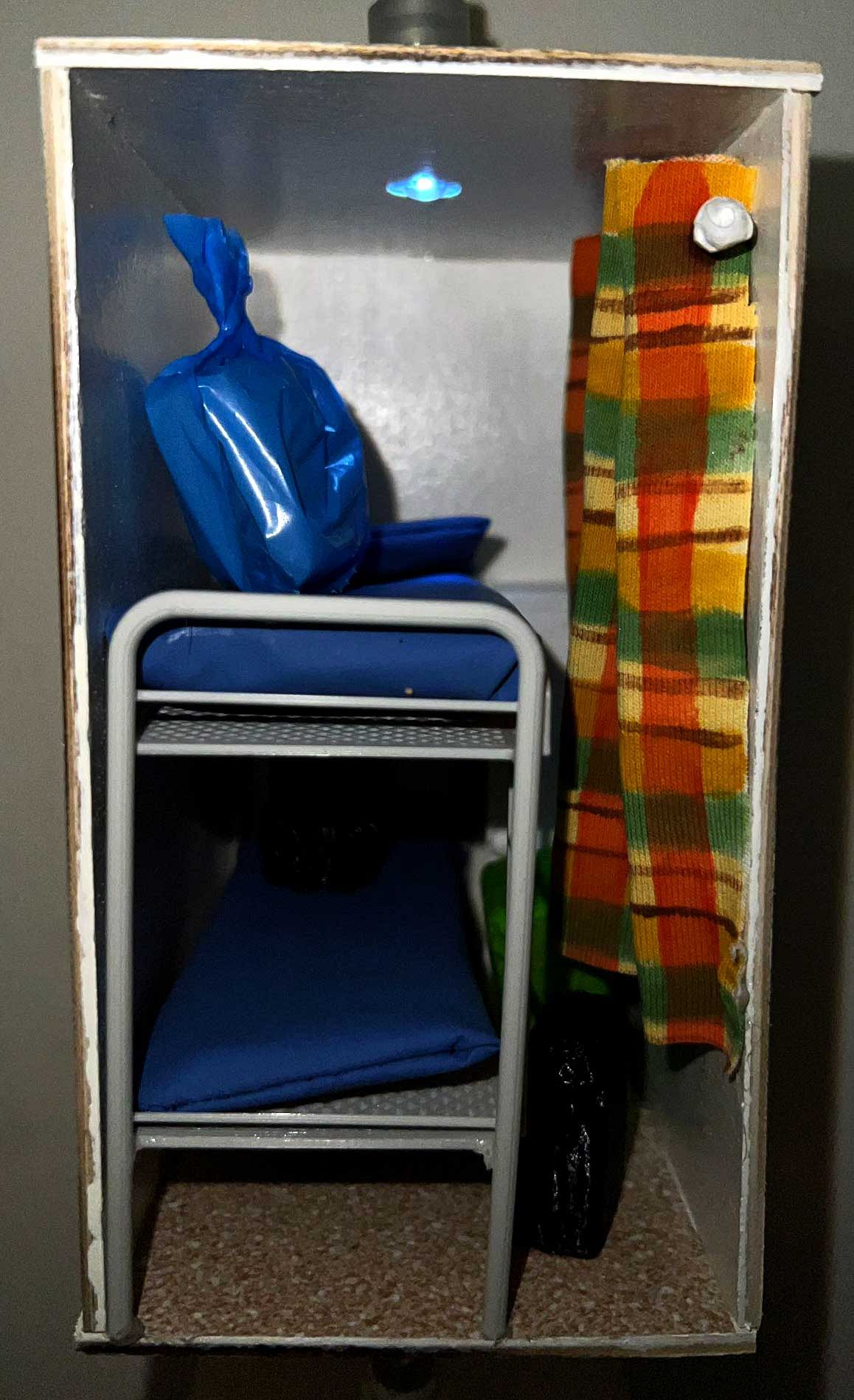
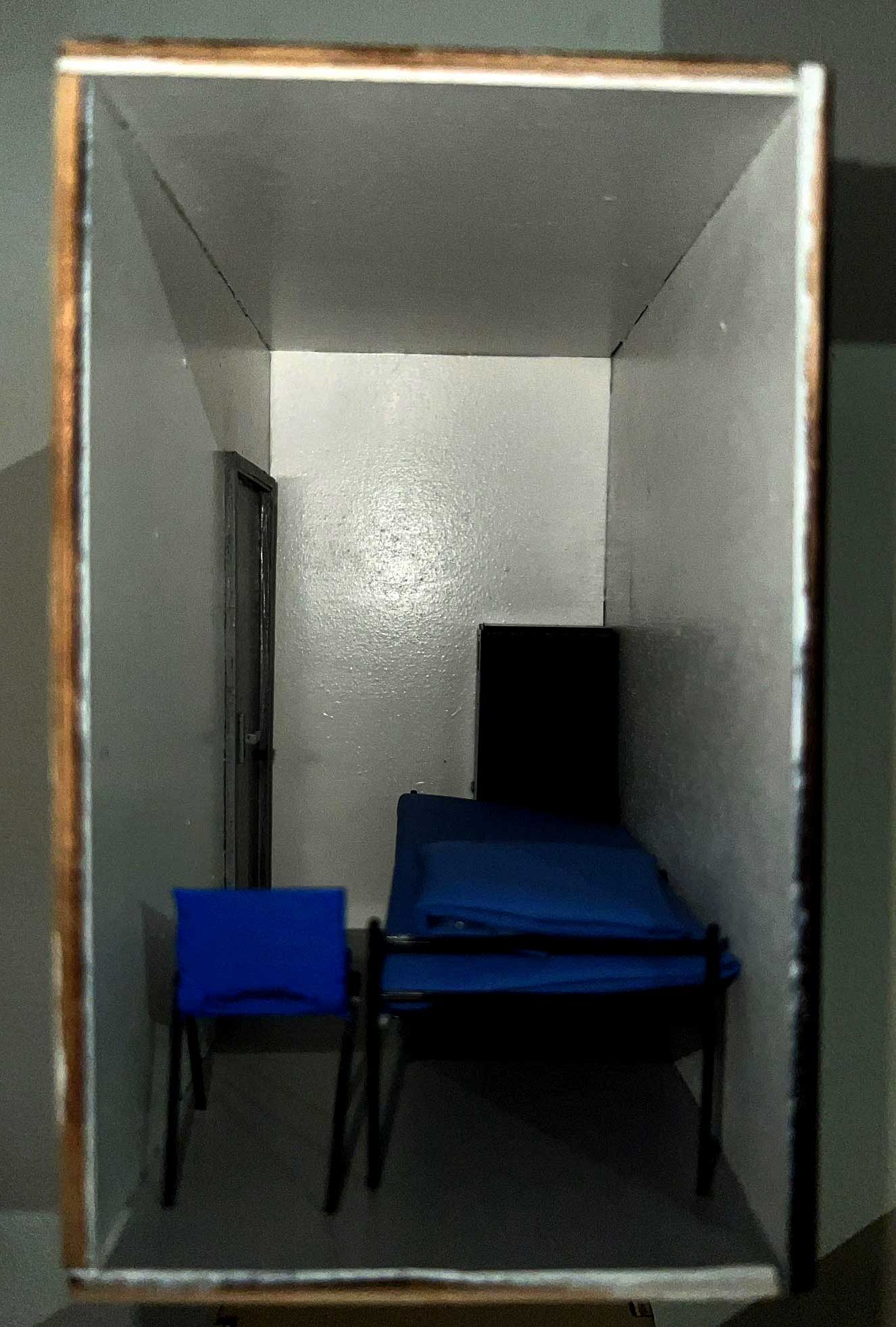
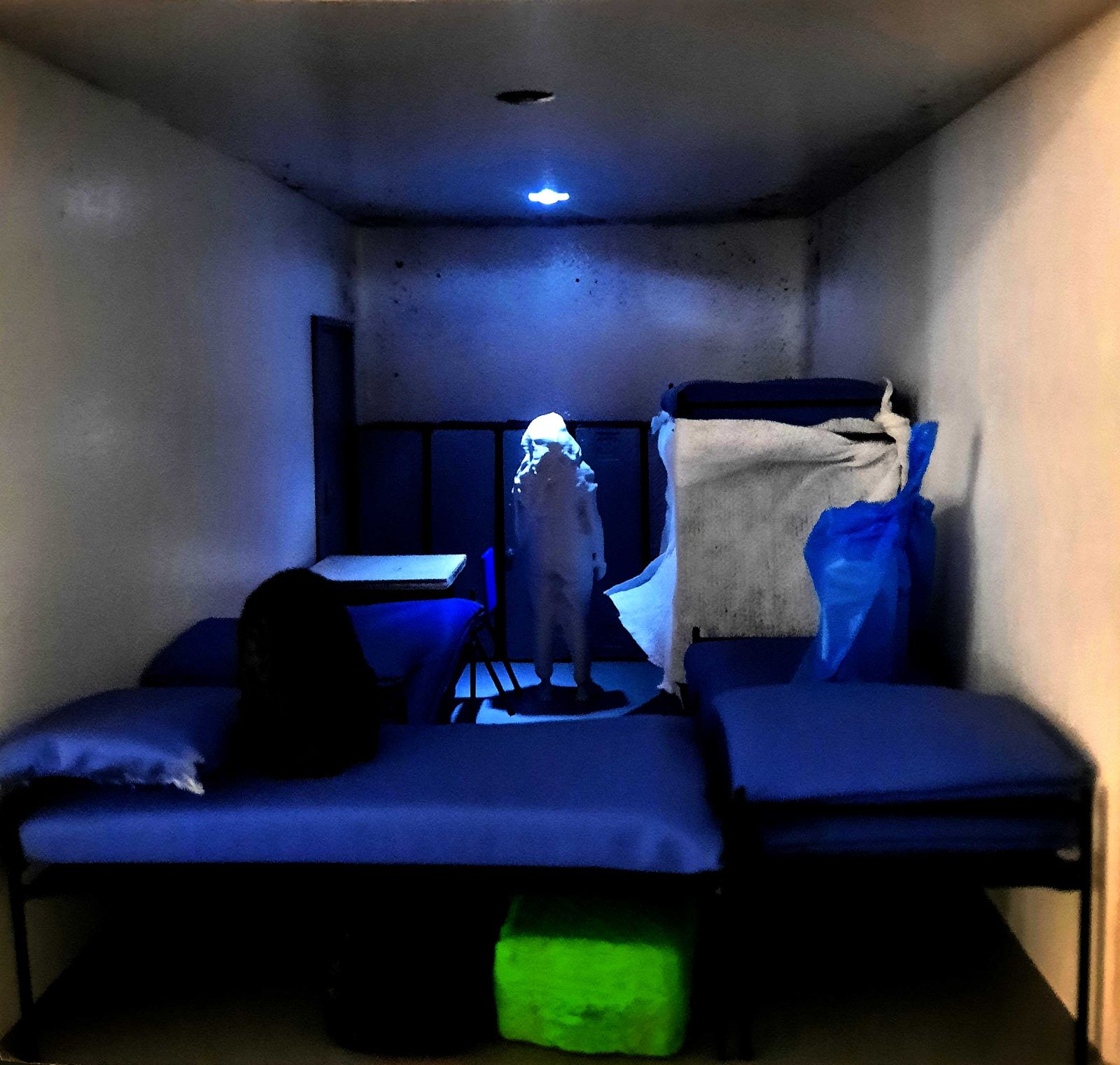
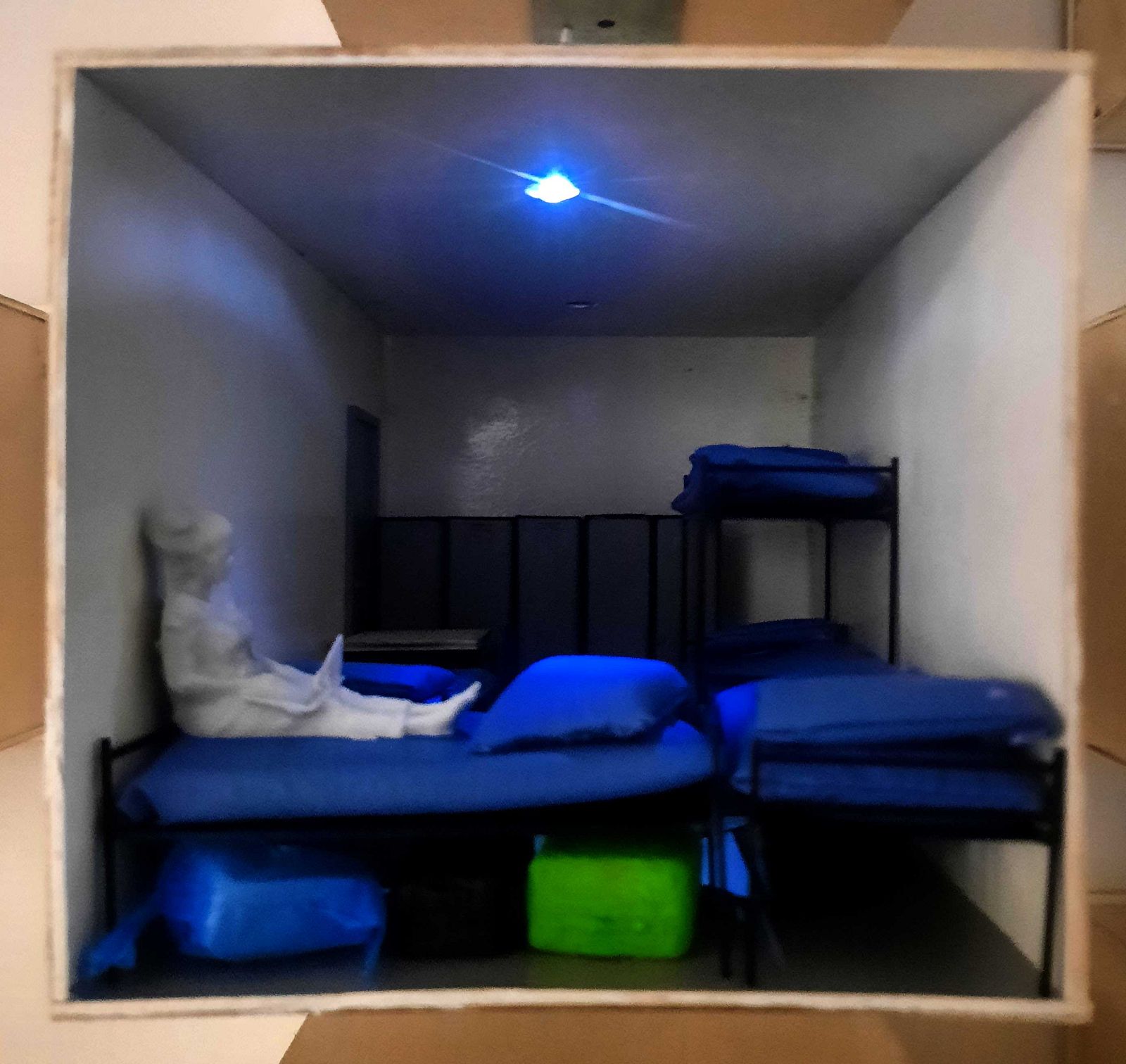

I didn't think about the impact of materials until I experienced this journey. The leather matters, disposable bed sheets, the exact same fireproof furniture, the same products and food for more than two years. My individuality disappeared, and my preferences didn't matter.
Paper rooms
Receiving papers and forms from COA, VWN, and IND; collecting evidence from home. My life had to shift to a system of paperwork and mail, transforming my existence into a series of forms.
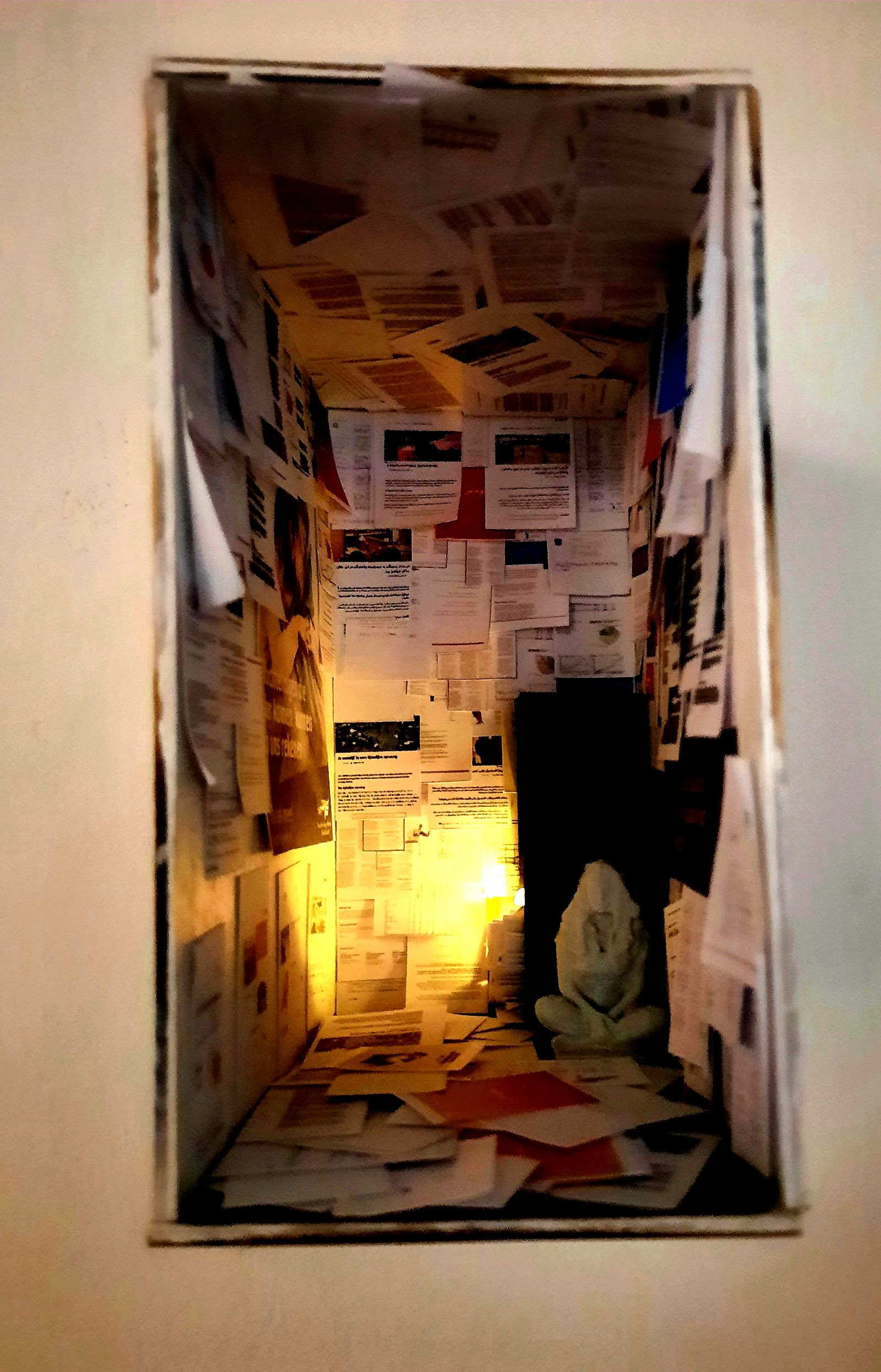
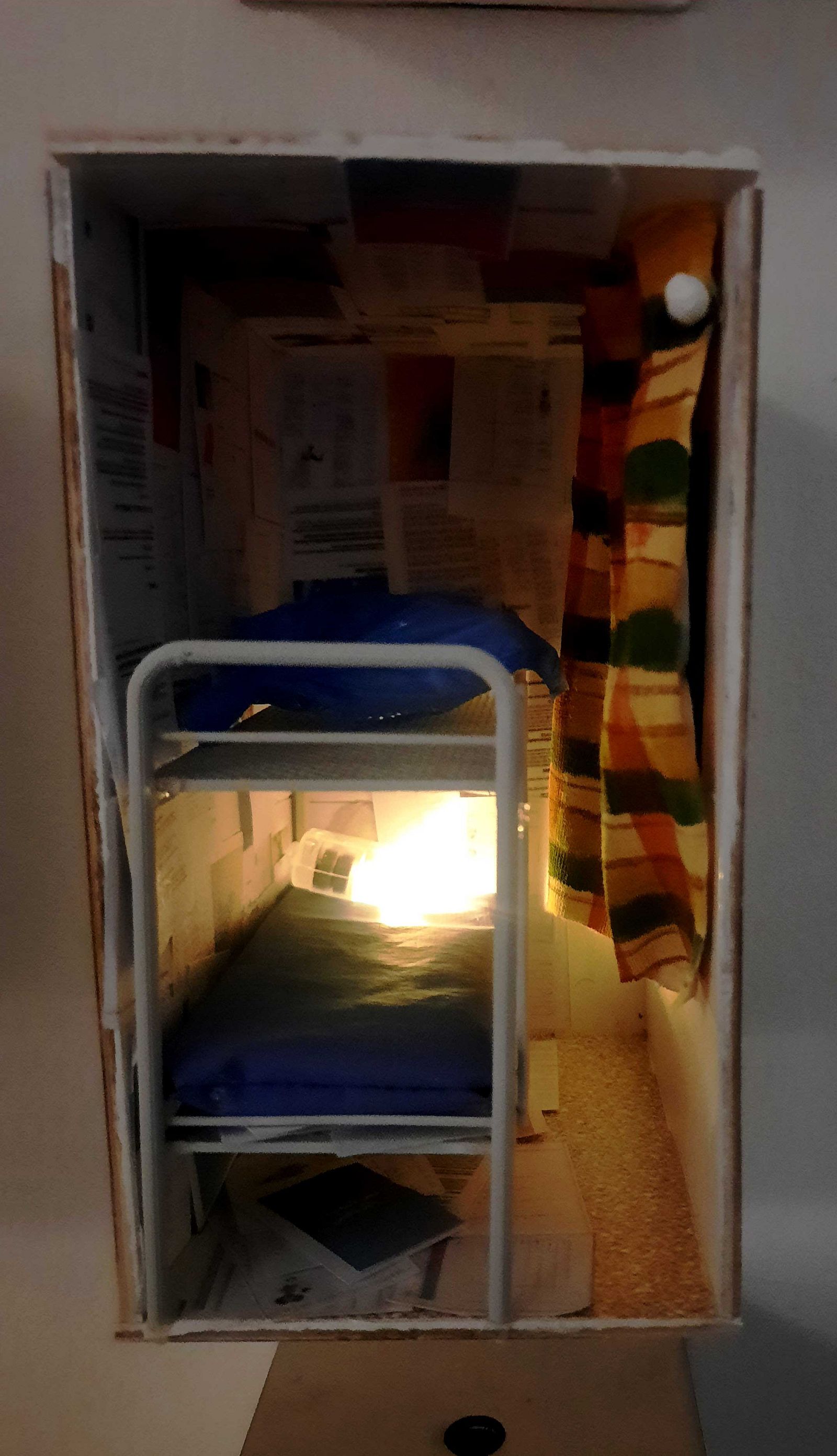
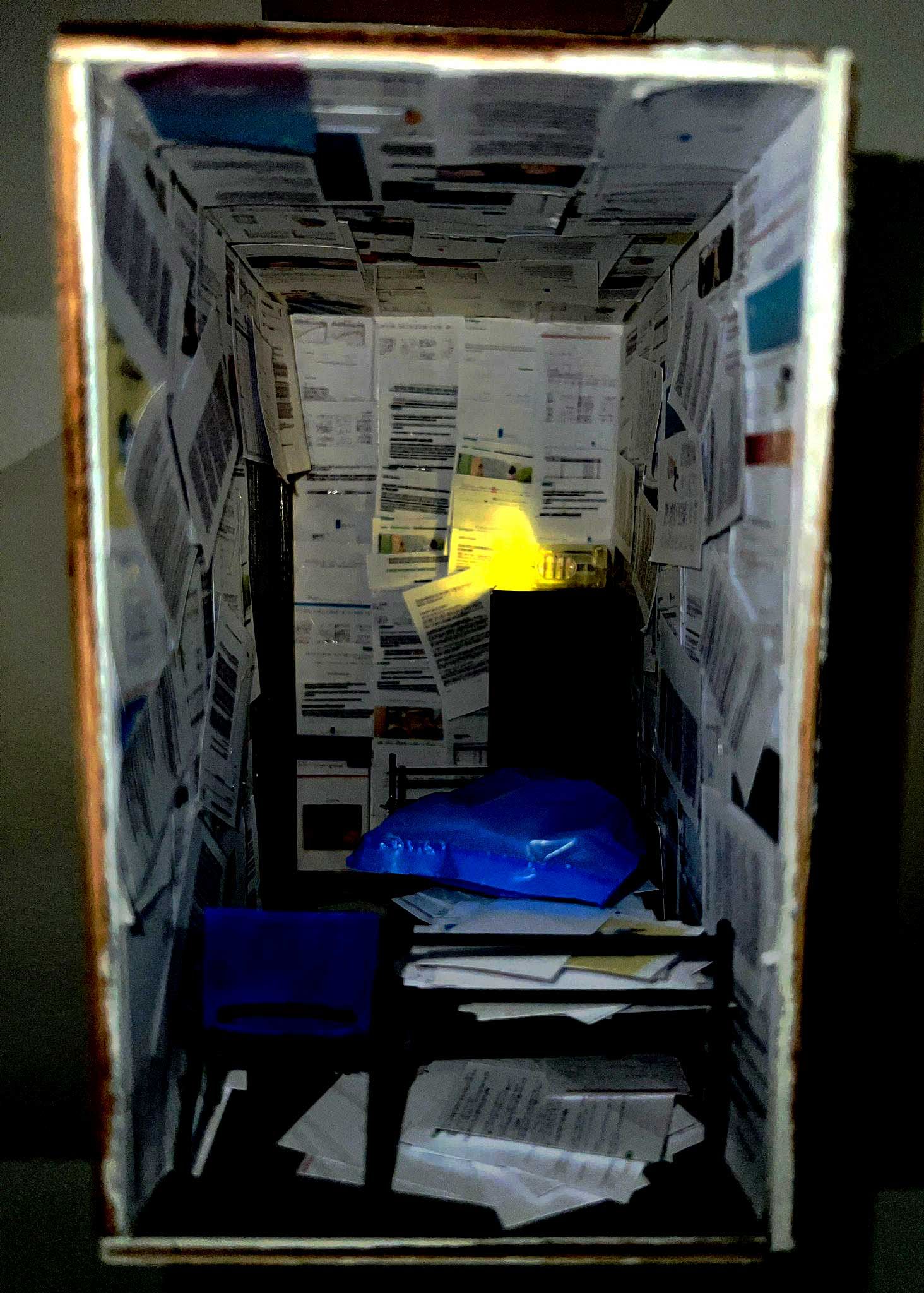
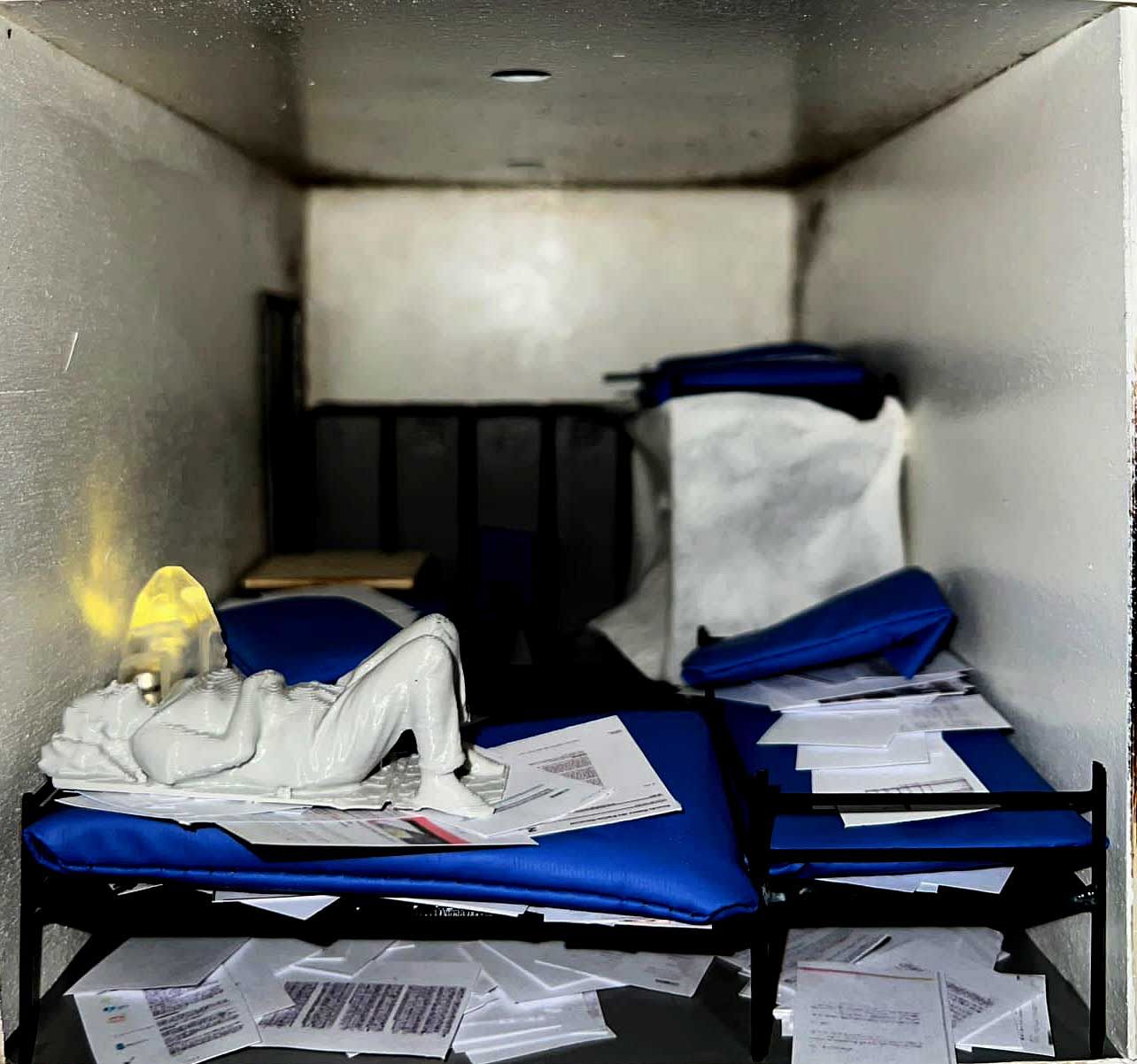
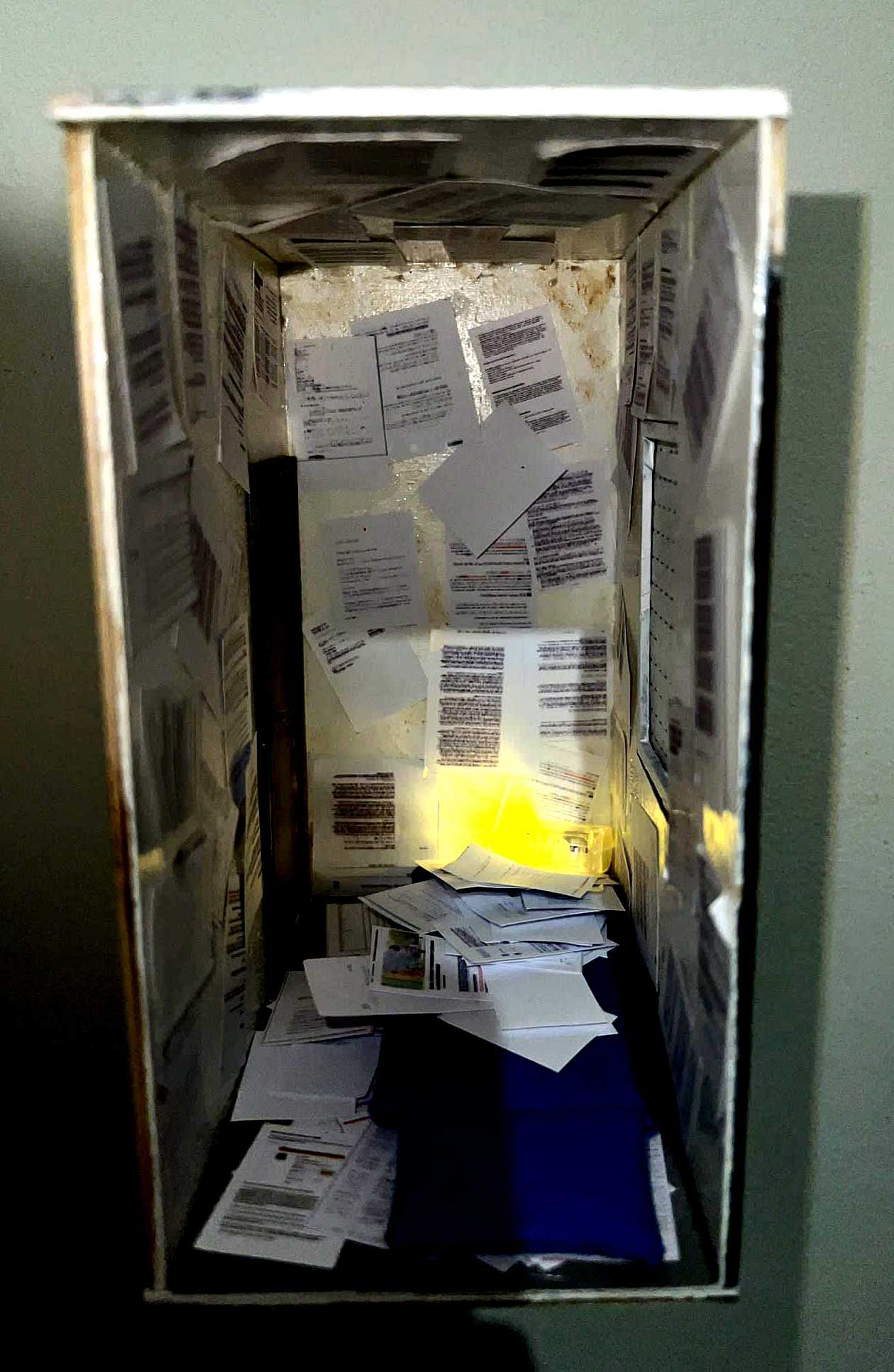
Waiting rooms
One of the main things you do during this entire period is the unknown waiting, mainly waiting for interviews. You also wait for every things else such as transfers, food, and posts etc.
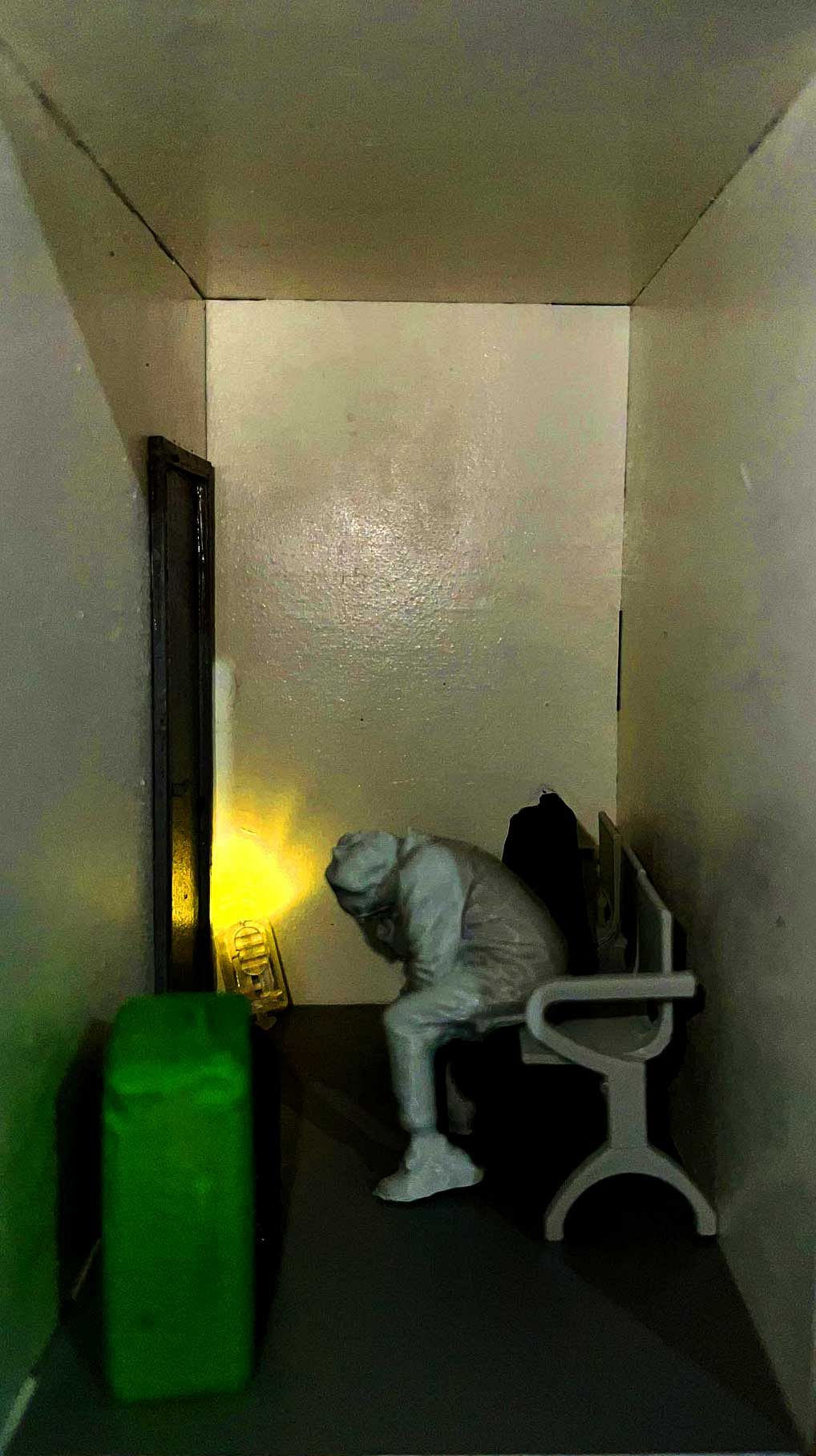
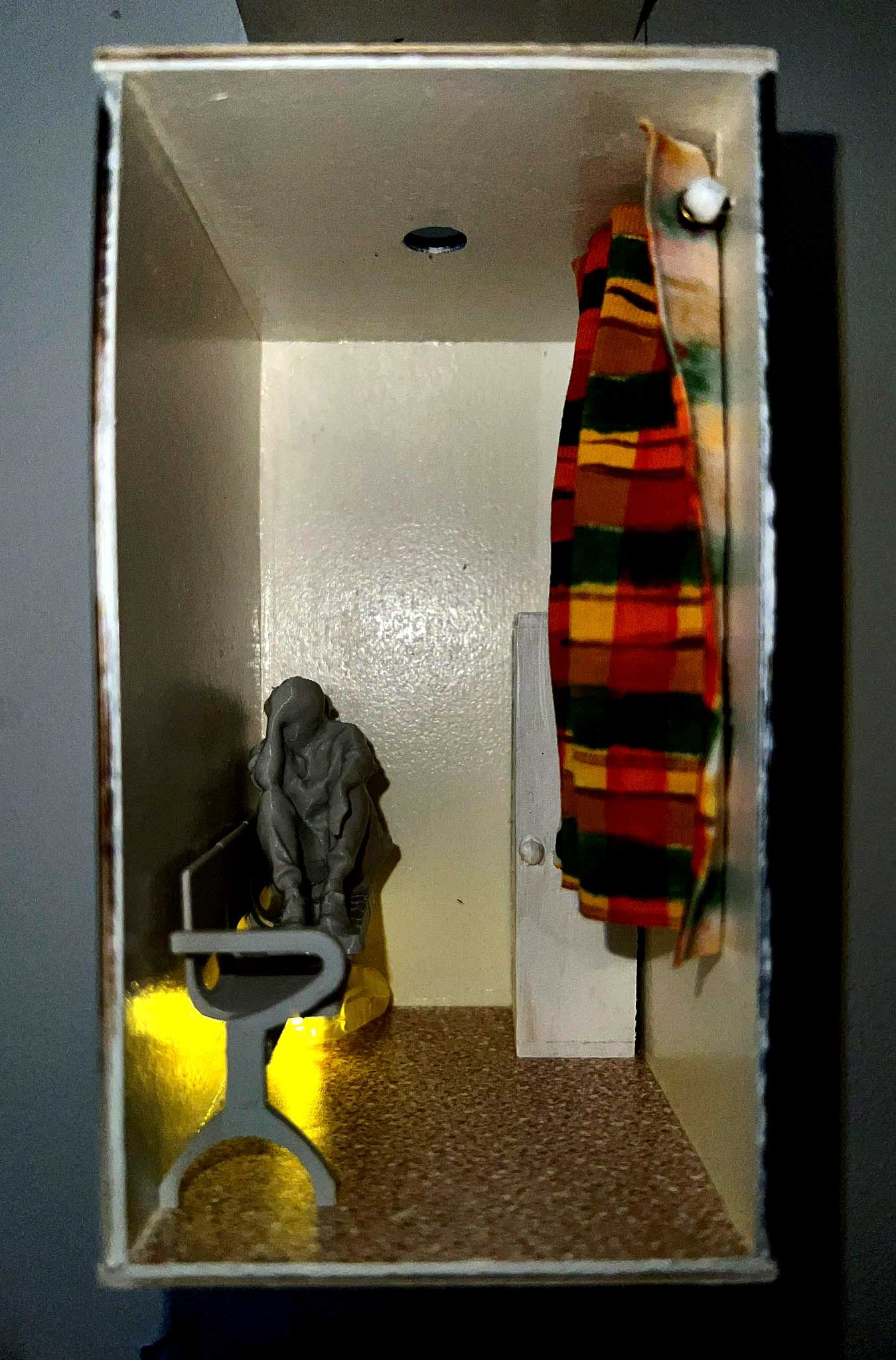
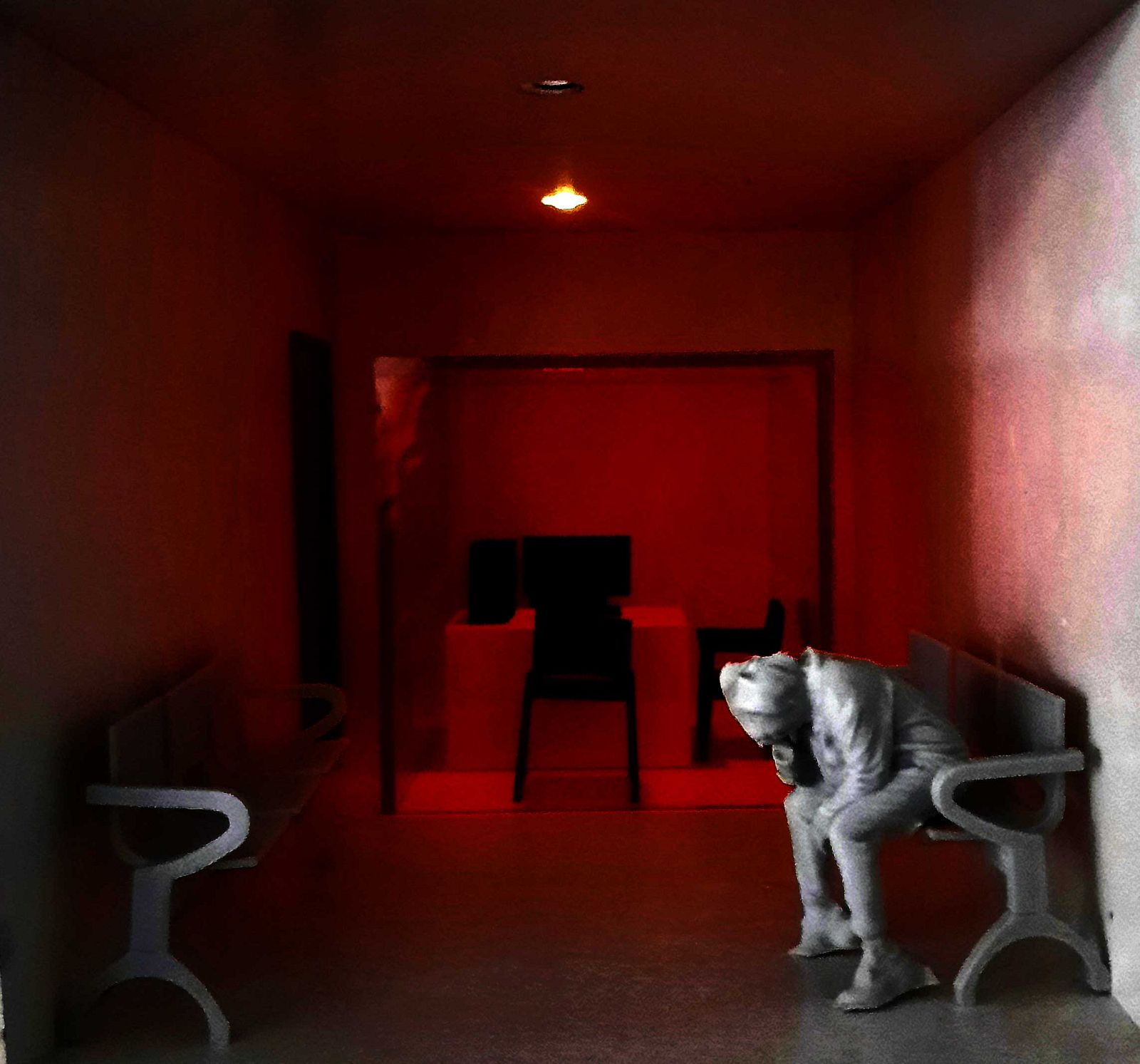
Emotional rooms
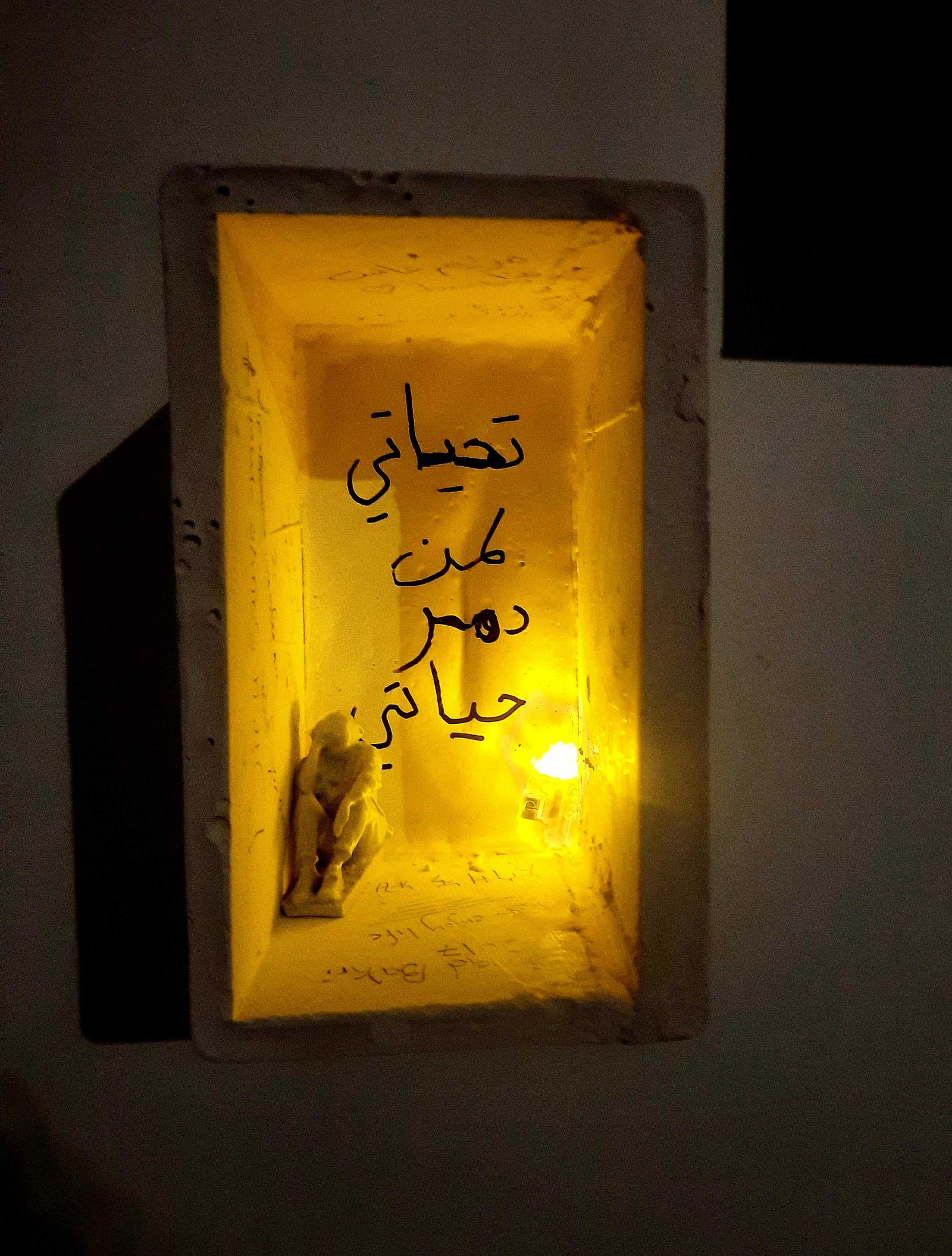
How many people lived in this room? How many people used the same mattress and pillow? Many people leave traces, and one of these traces is writing on the wall.

You are surrounded by people all the time, with zero privacy, while being isolated from the outside world. You have no choice about whom you share your room and your life with, and you are expected to have no objections.
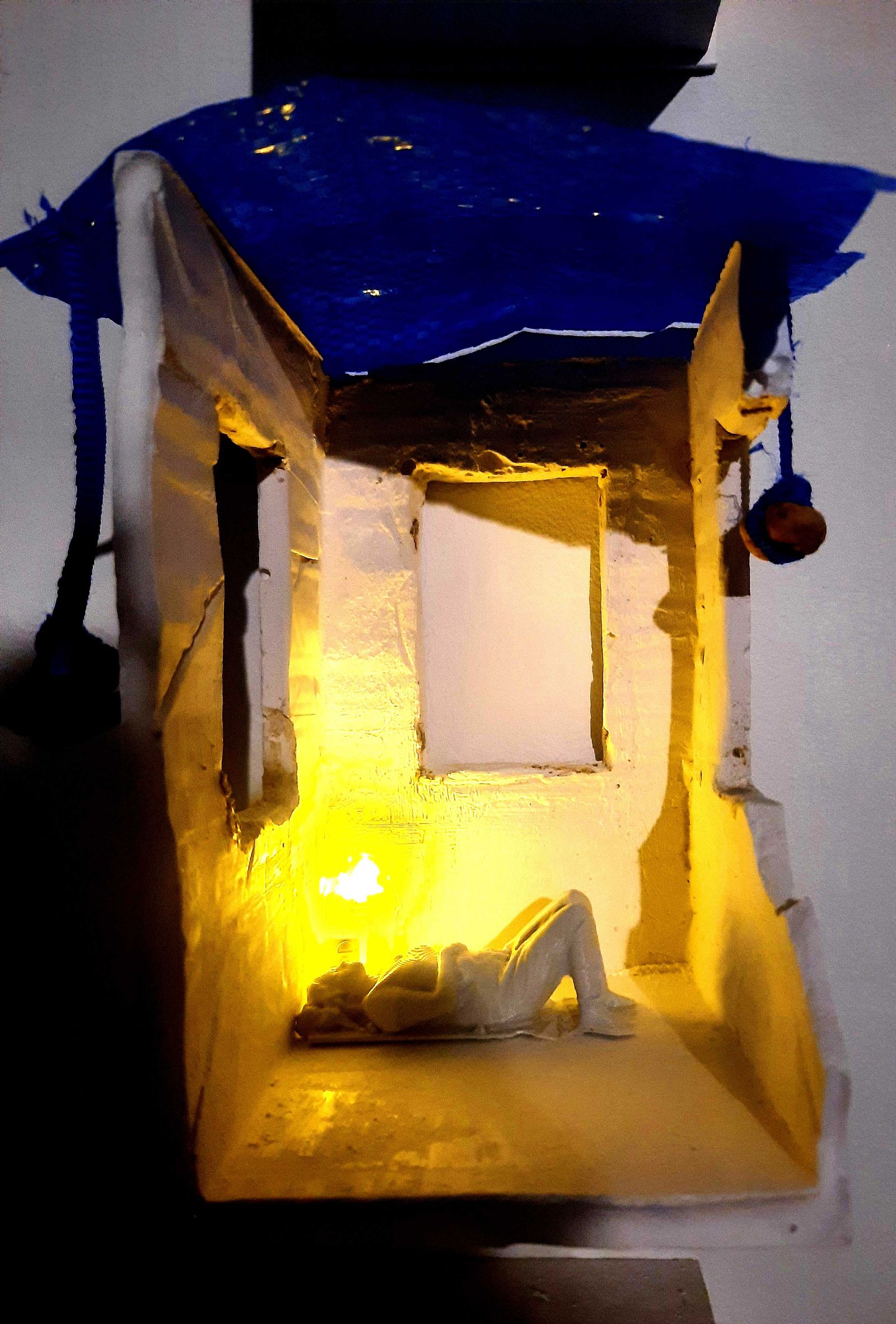
As soon as your body and mind relax, old traumas begin to surface. Additionally, you are surrounded by people with traumas even more severe than yours. You become confused between your own trauma and theirs.
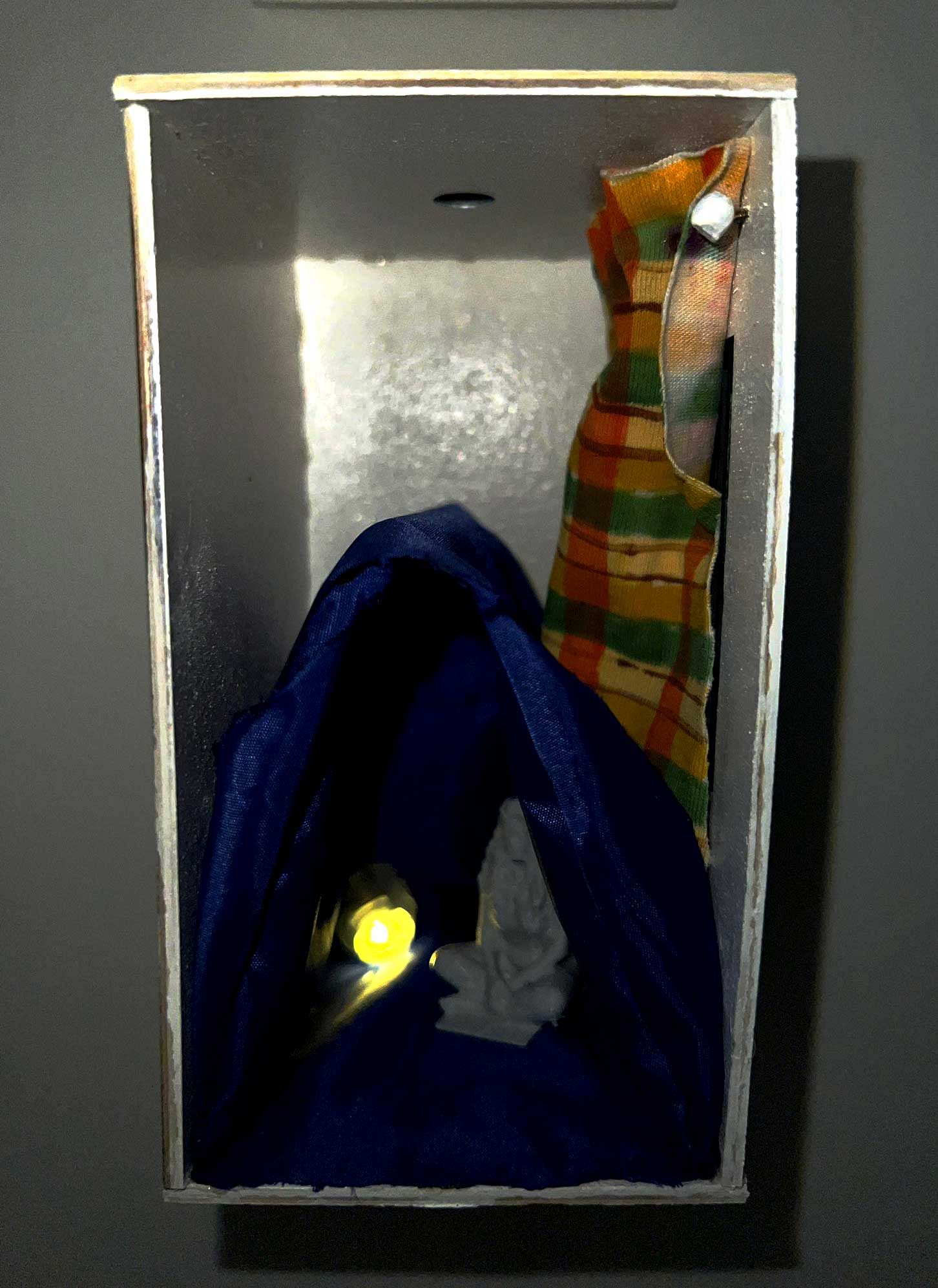
You start to realize your new reality, your rights, and how people perceive you. A 'refugee,' and often refugees, are immediately associated with tents.
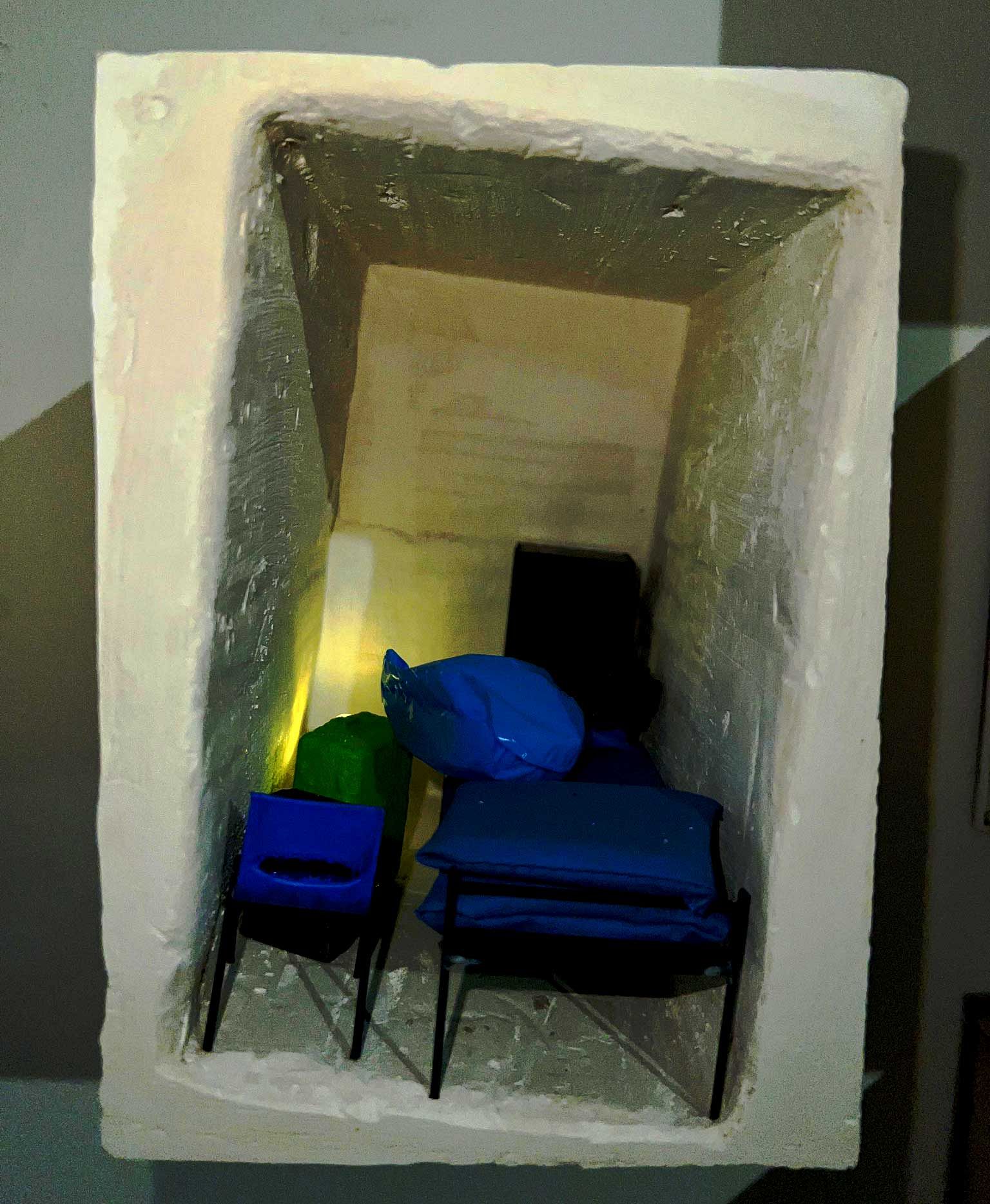
You can make no decisions; everything slips out of your hands, beyond your control.
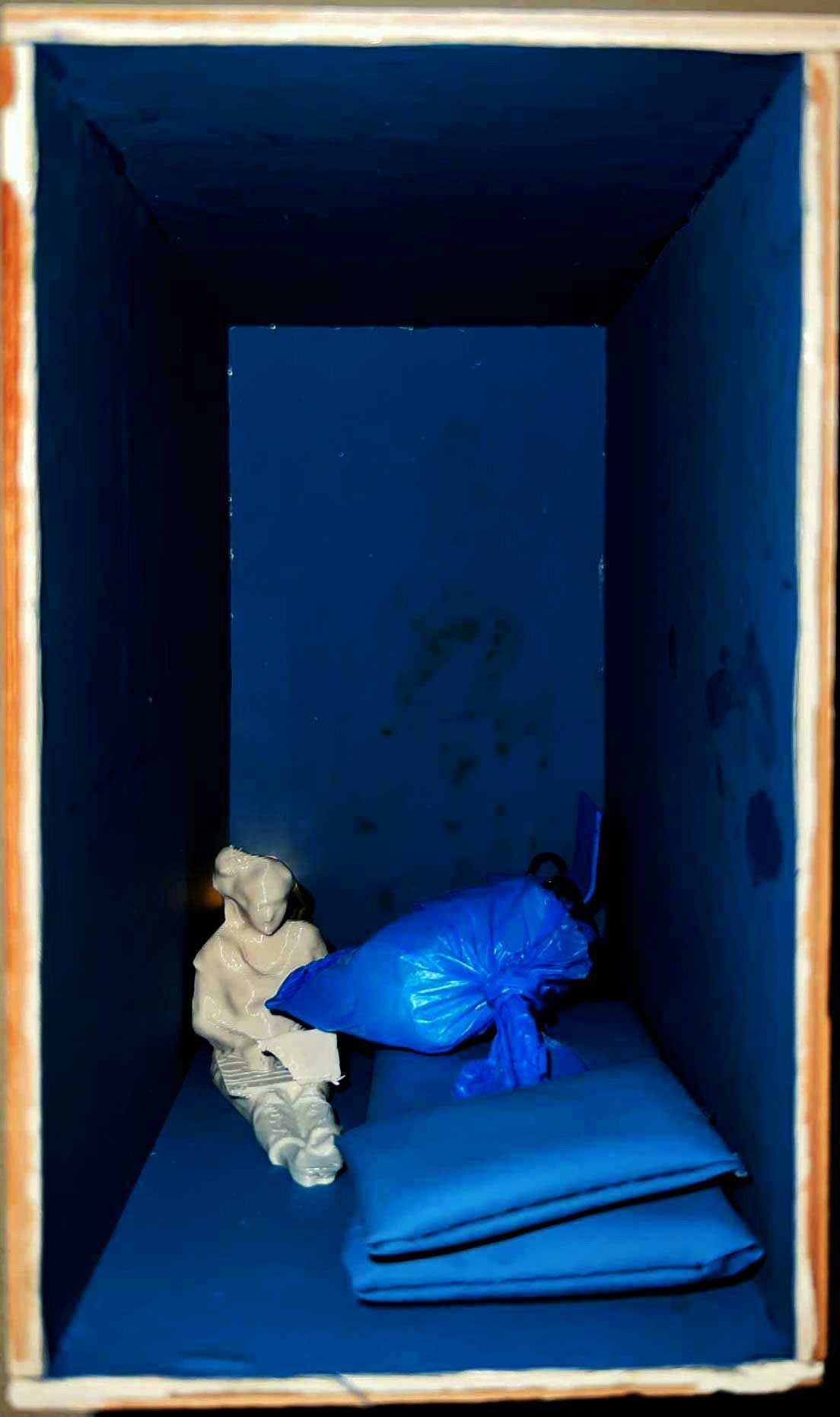
As time passes, dislikes can transform into hatred. (One of the things I hated the most was the incontinence blue leather mattress.) Relentless repetition can erode sanity, stripping away individuality and self-worth.
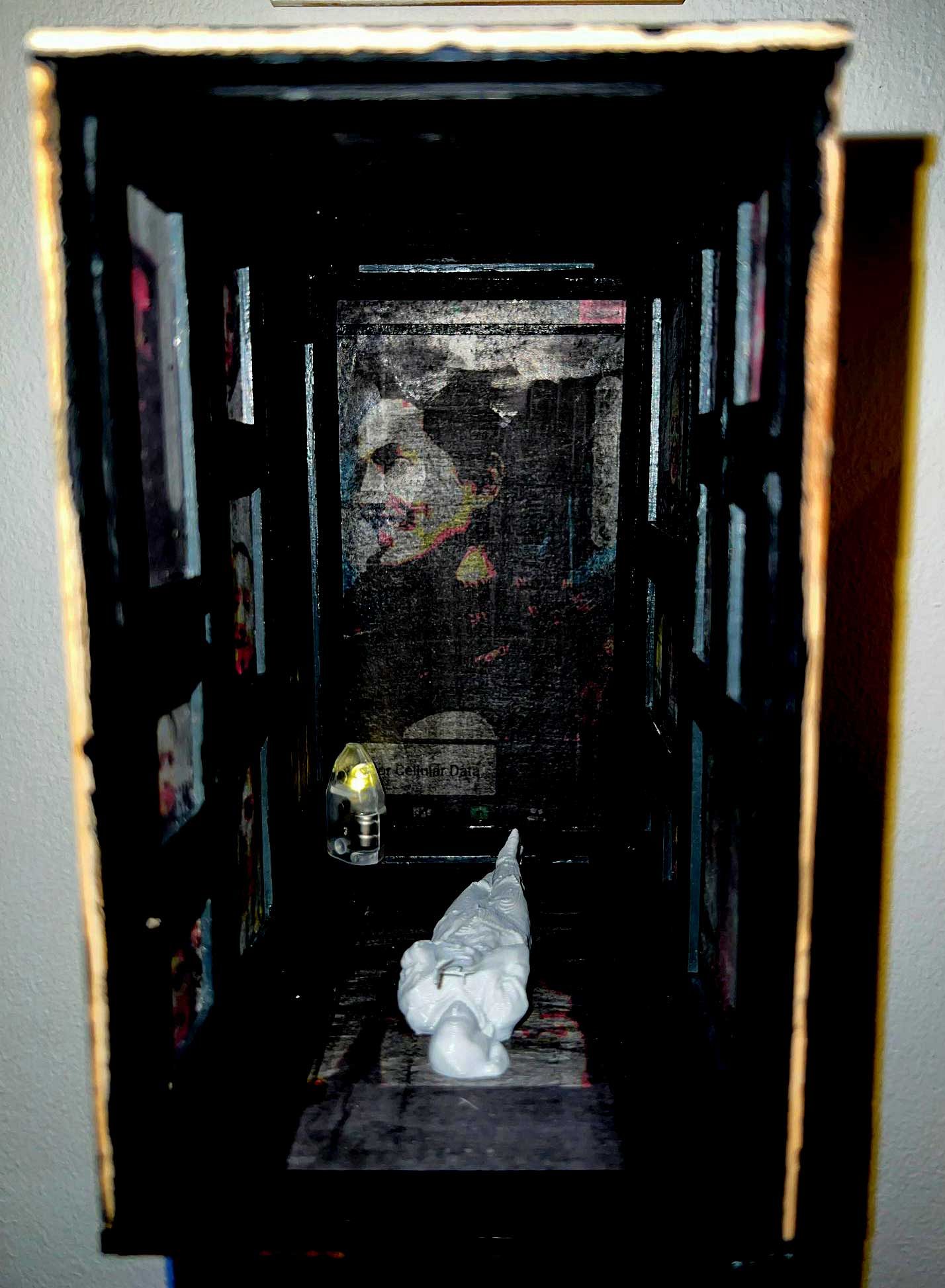
Everything is far away! I was cut off from social life and needs. I created another dimension. It's a rejection of reality—a quest to find a familiar place where one can shed all pressure, sadness, loneliness, and emptiness.
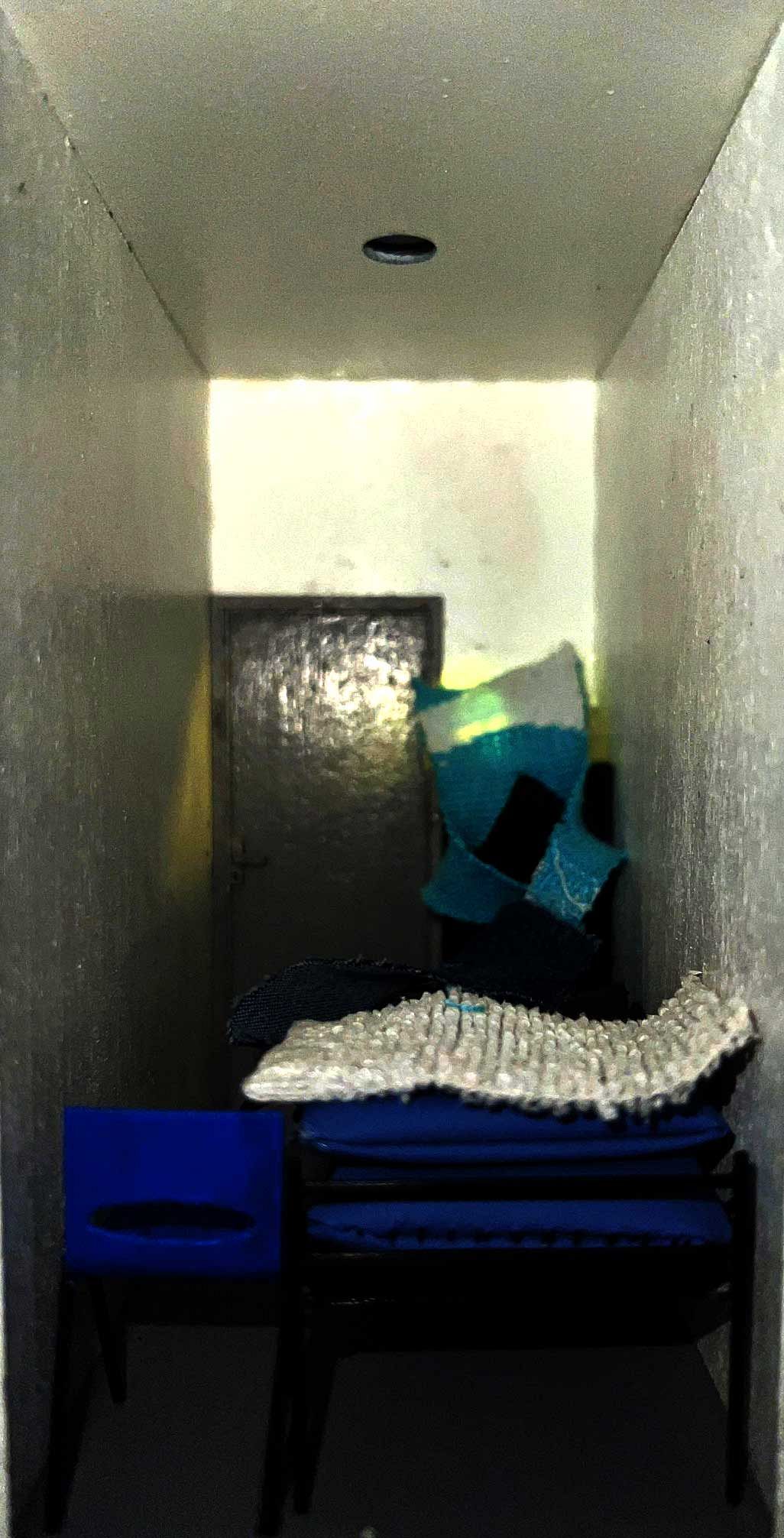
The only thing I had in that place that were truly mine were my clothes. I used them to cover the mattress so I could sleep, and I draped them around the room to find calmness and feel a sense of familiarity in a foreign place.
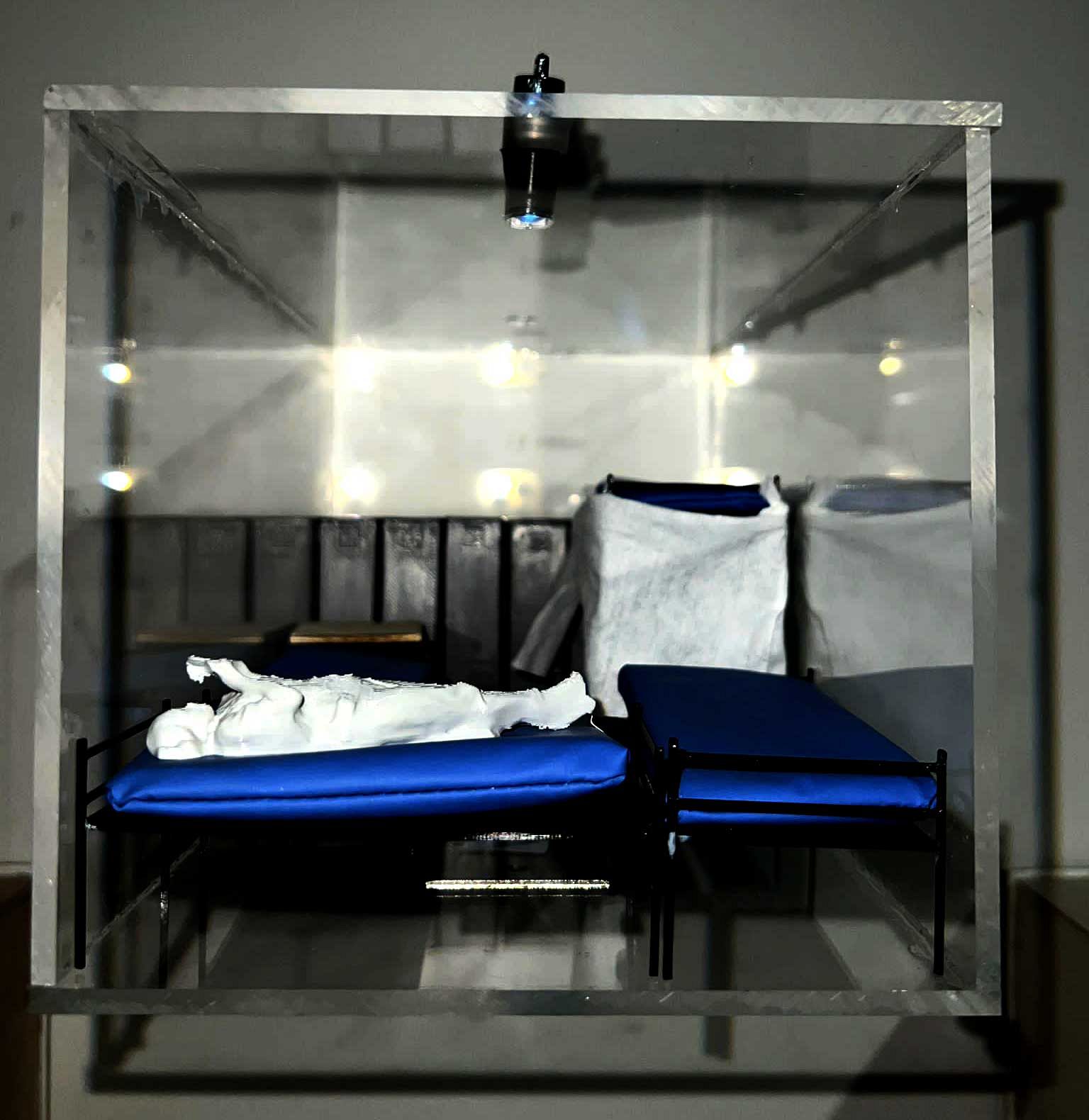
Five people shared the same room: strangers, with whom you may or may not get along. In a time of high stress, the presence of these unfamiliar individuals becomes overwhelming. As you prepare your story, you feel exposed, threatened, and unsafe.

Even a simple item like a nail clipper had a significant impact on me. However, this sense of gratitude changed over time. Every week, we received the same items. The same vile soap for hair and body. The same tasteless and expired toothpaste. The same teeny-tiny pad. Even the nail clipper became irritating.
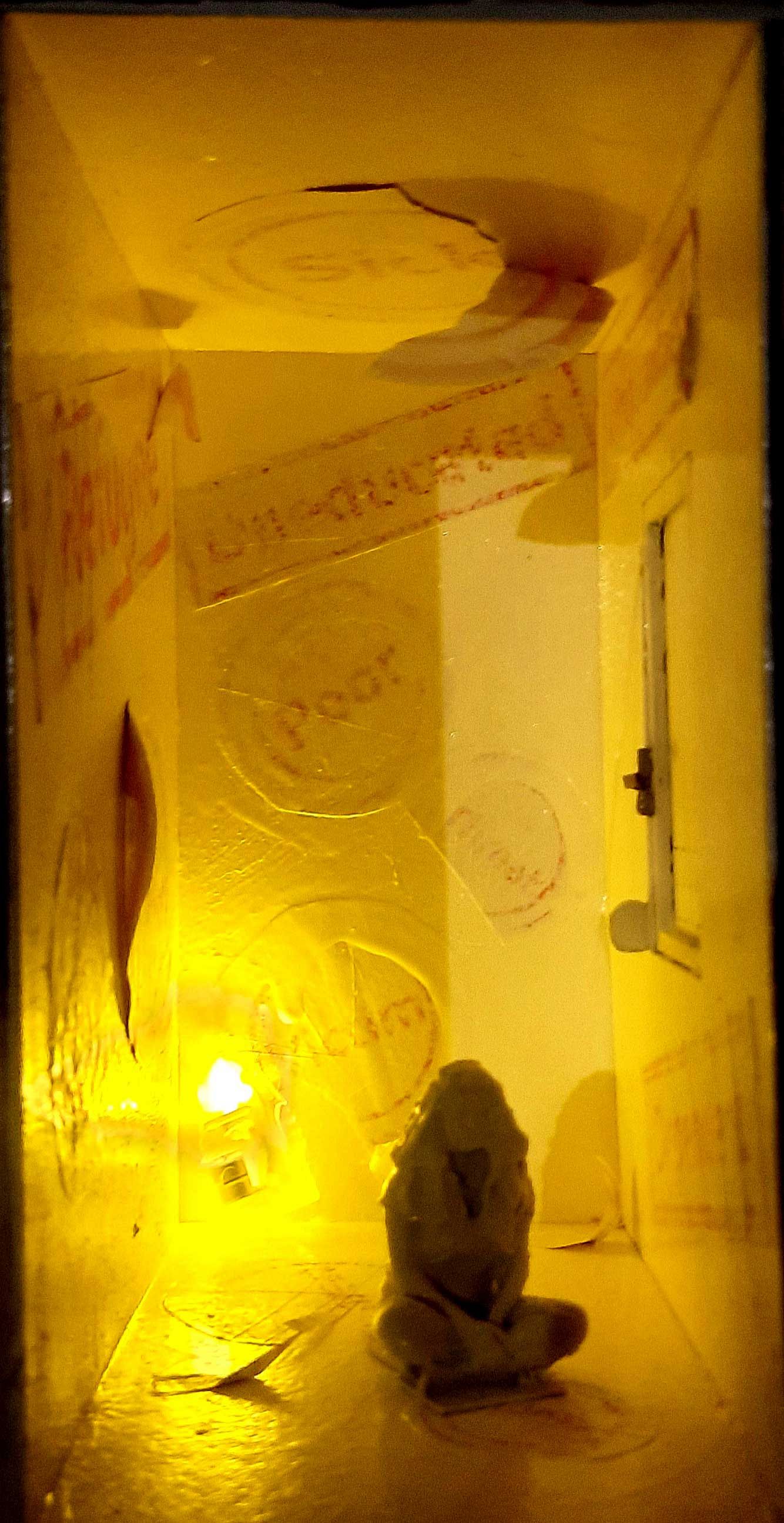
I reject the label of 'refugee'; I refuse to be introduced as such because I am more than just that label. However, despite my efforts to shed it, it remains attached to me. This word is often associated with negative connotations such as poverty, lack of intelligence, and criminality. Furthermore, politically, refugees are frequently portrayed as the villains.
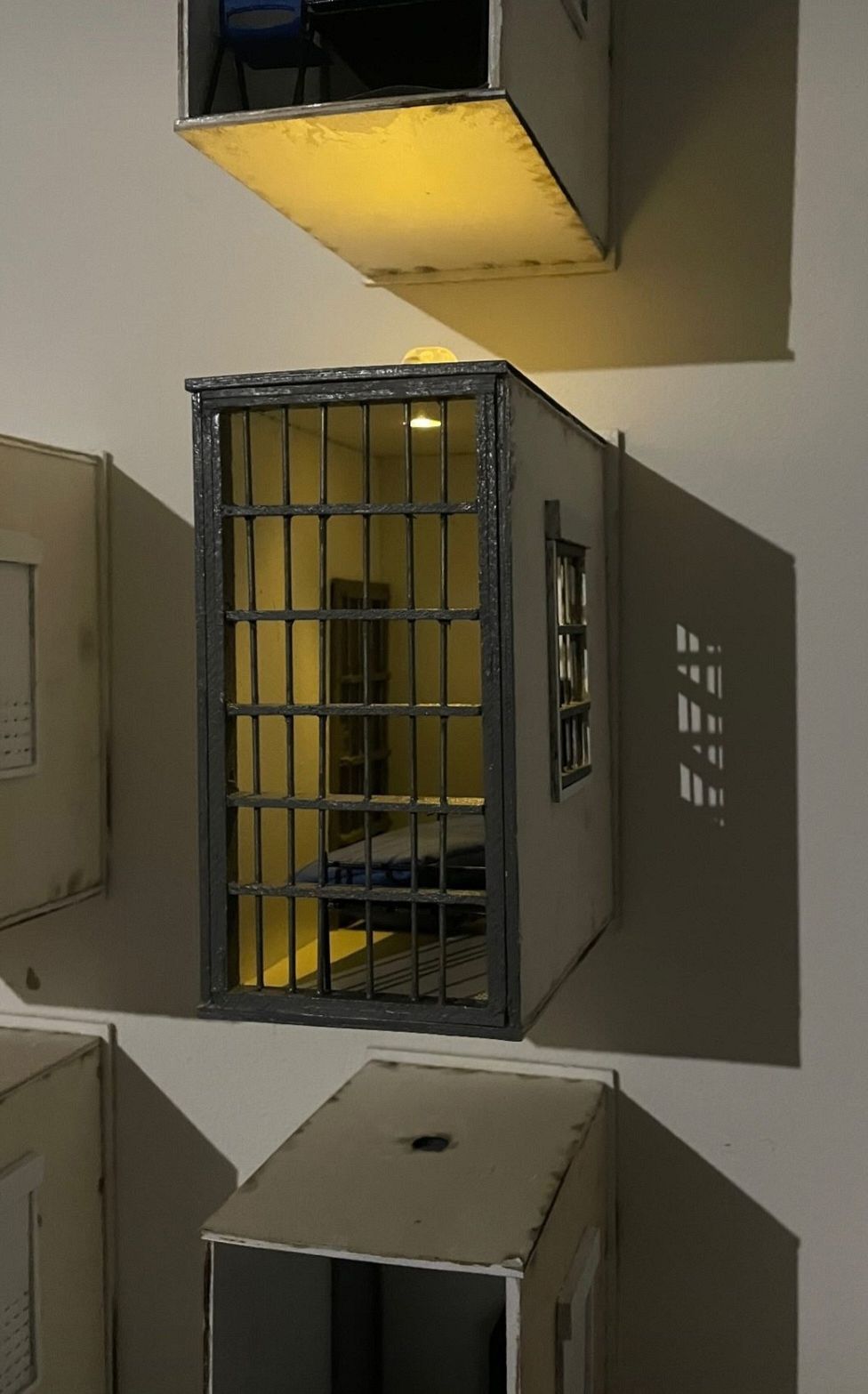
The room feels like a small prison, isolated from the city and social life. Every aspect of your life is dominated by constant monitoring and an abundance of rules.
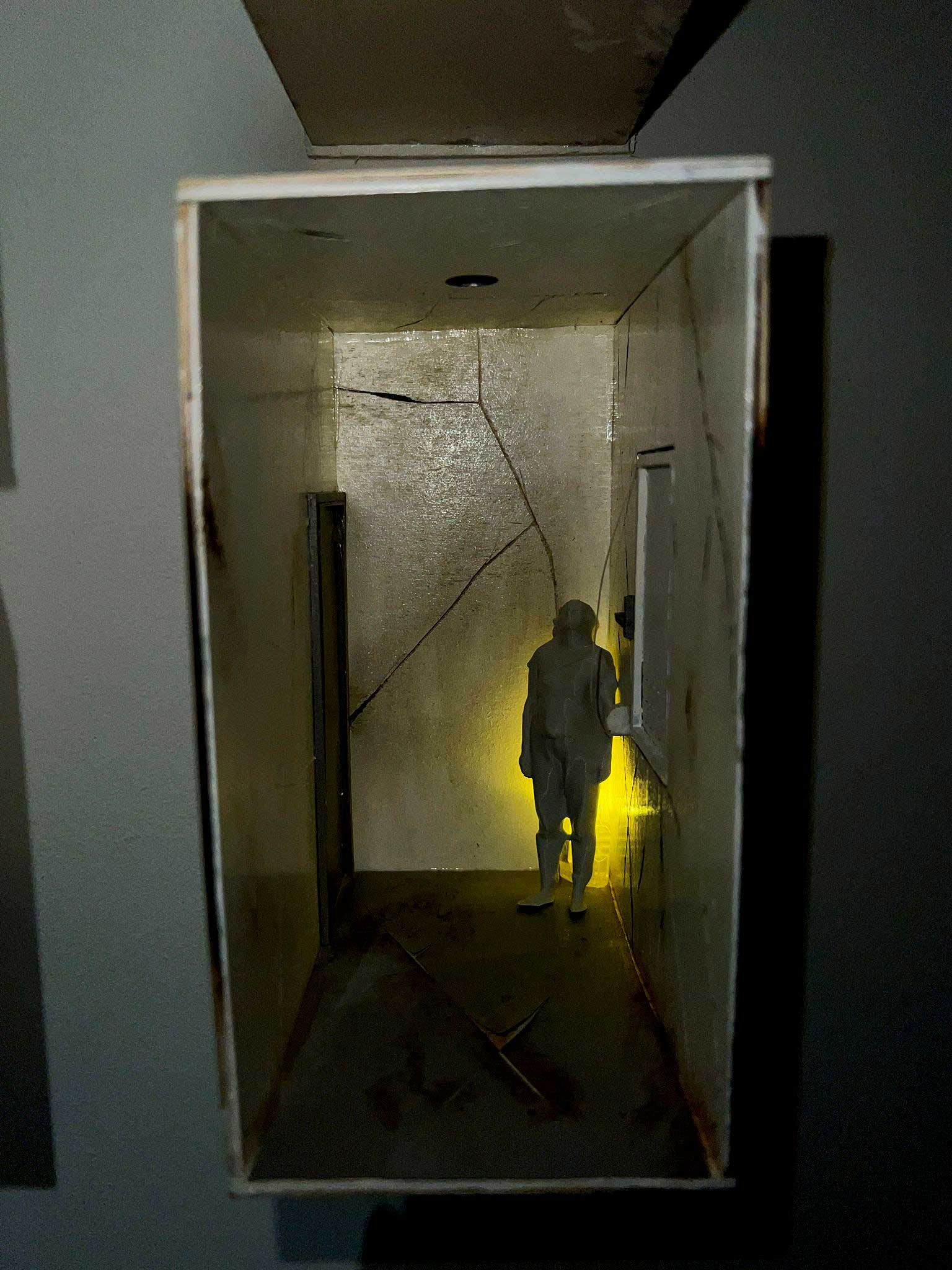
You just cannot have a plan; your dreams fade, and your future is unknown. Your life is cracking in front of your eyes.
